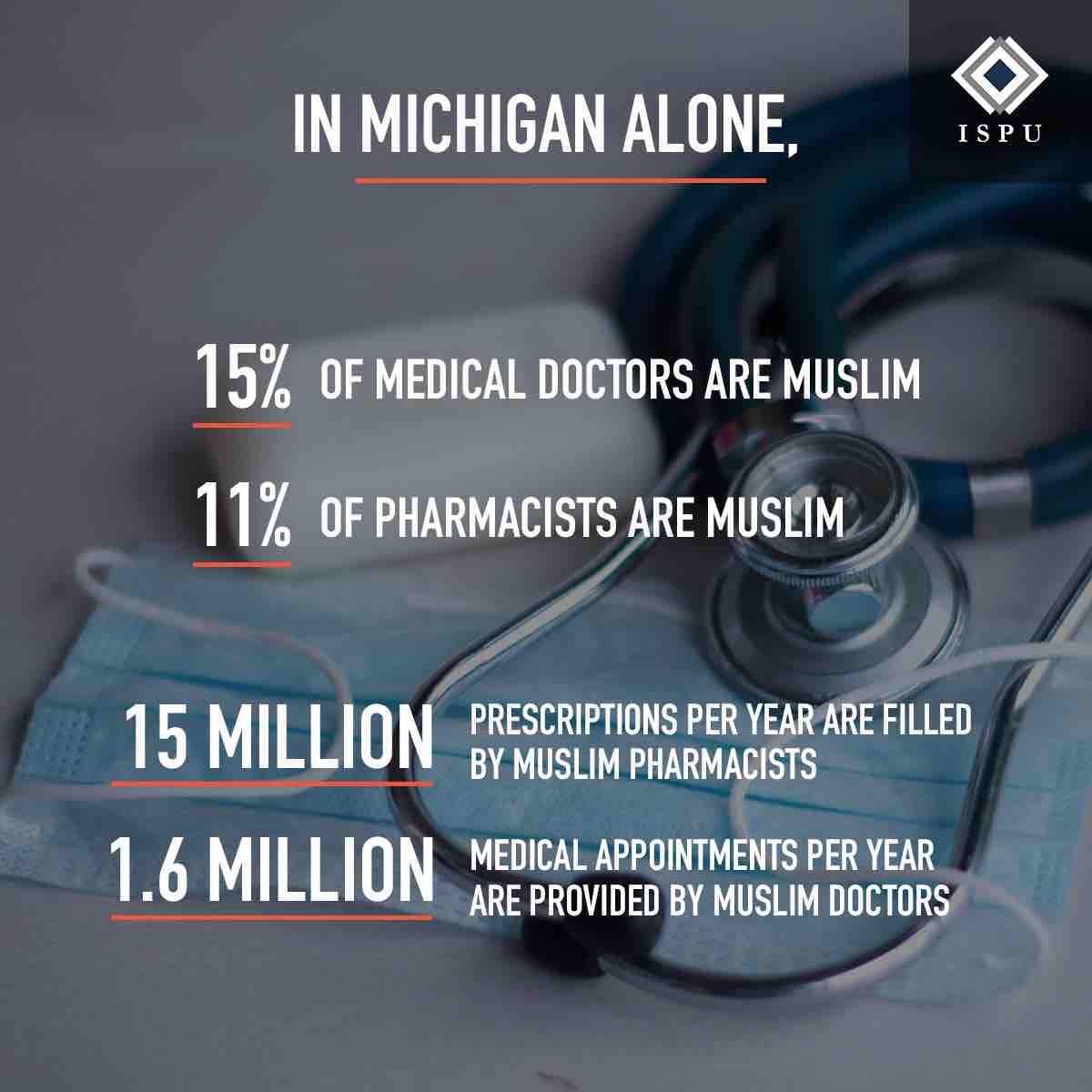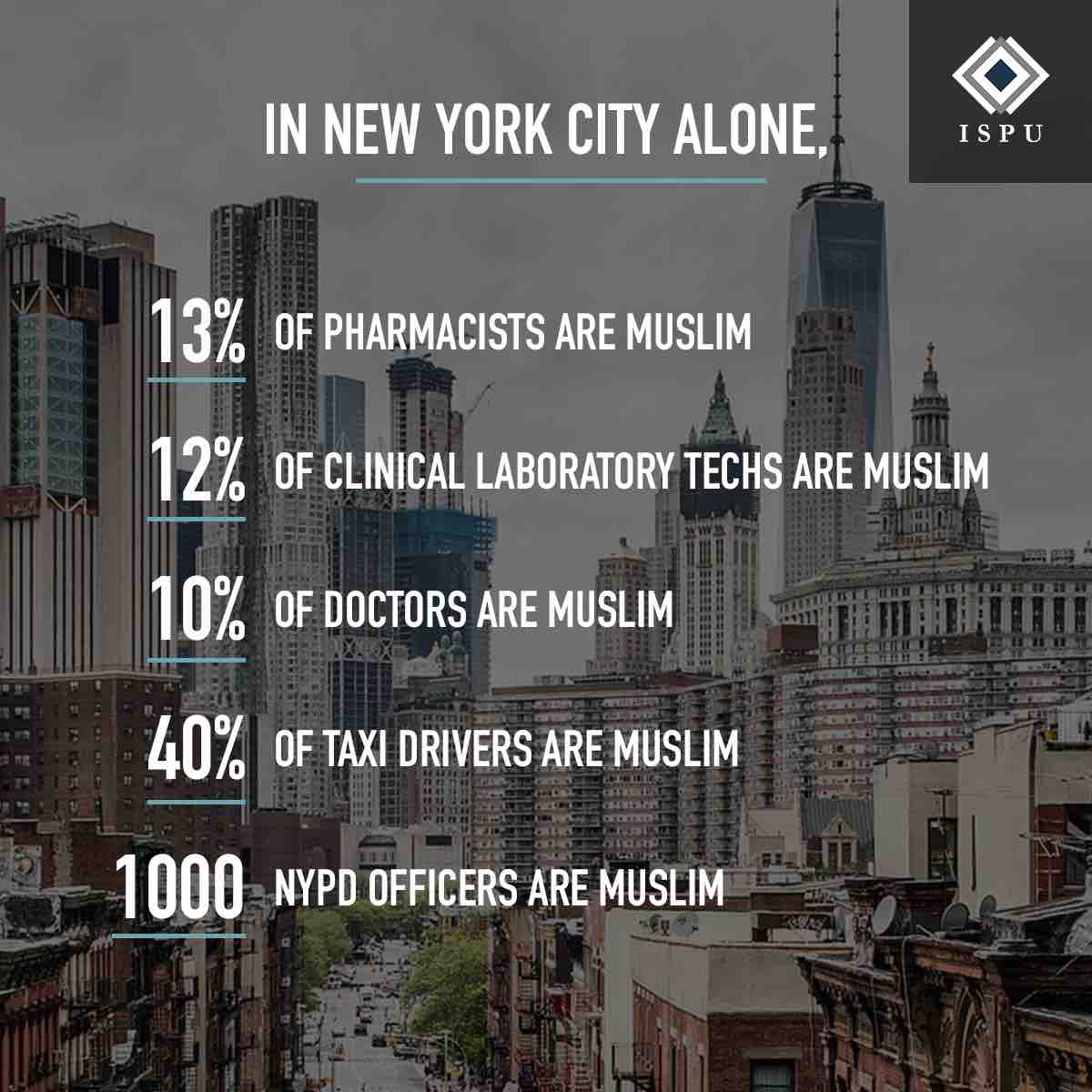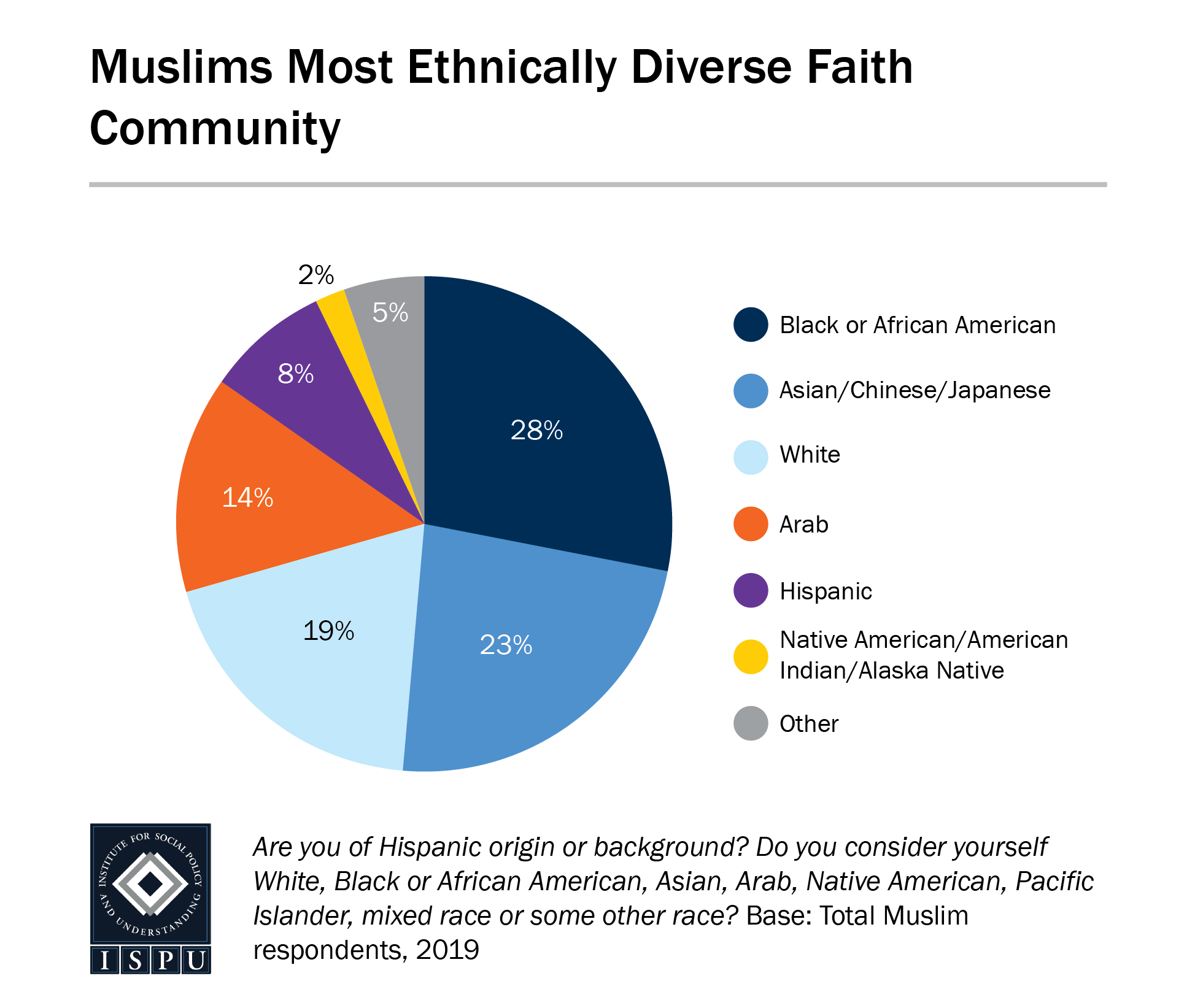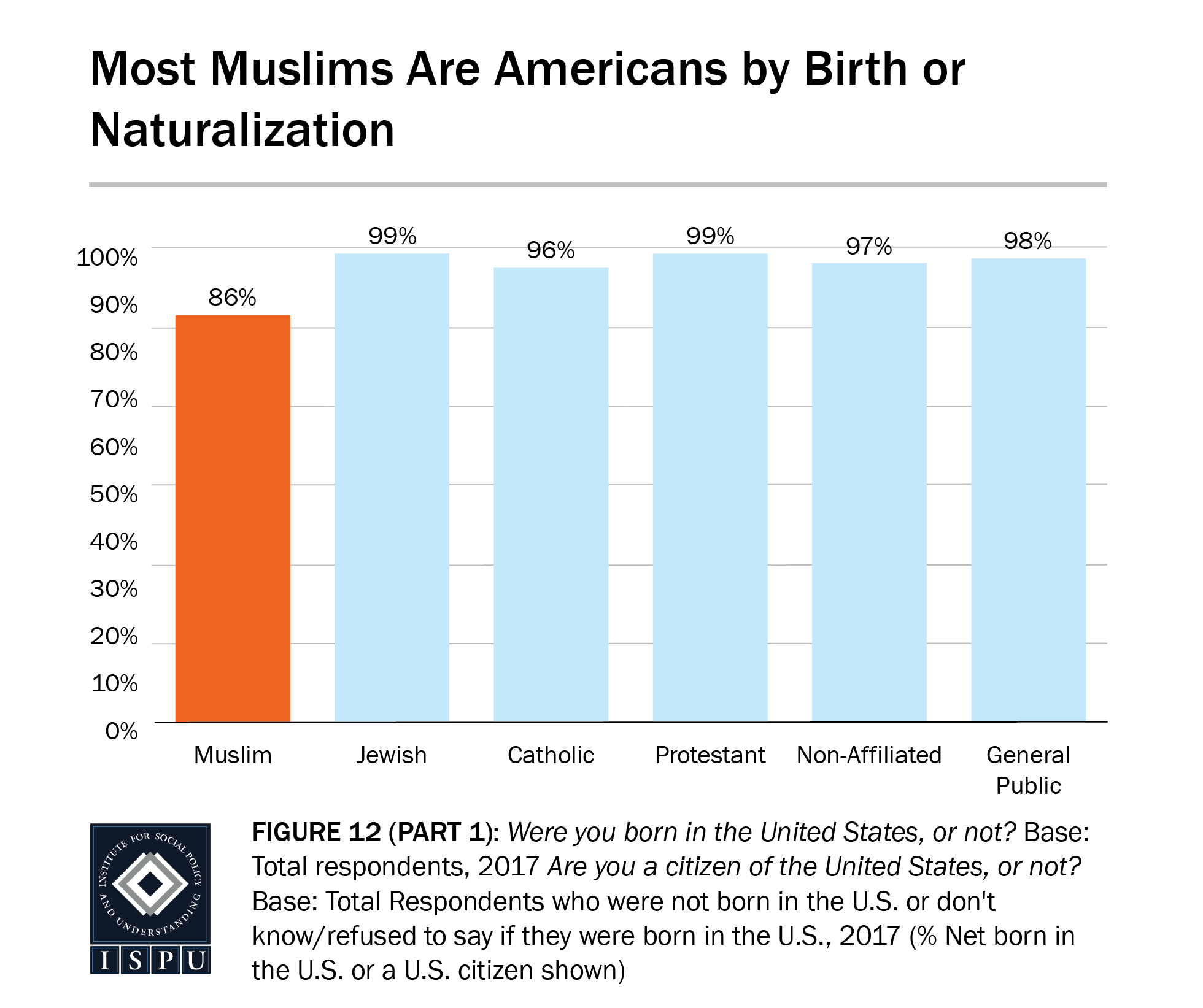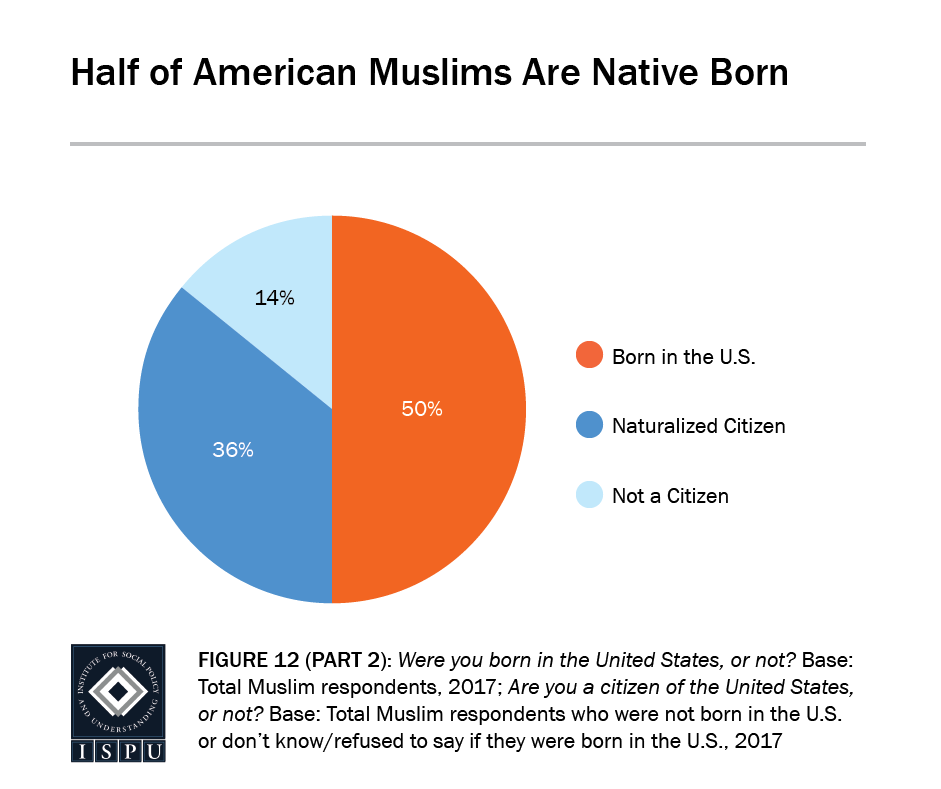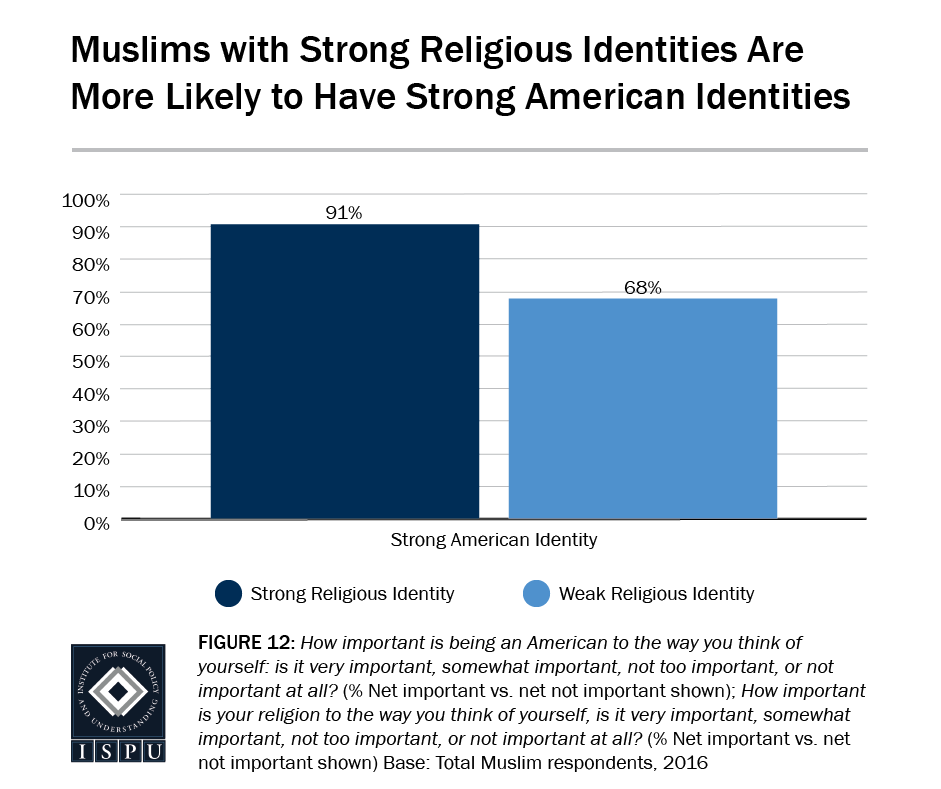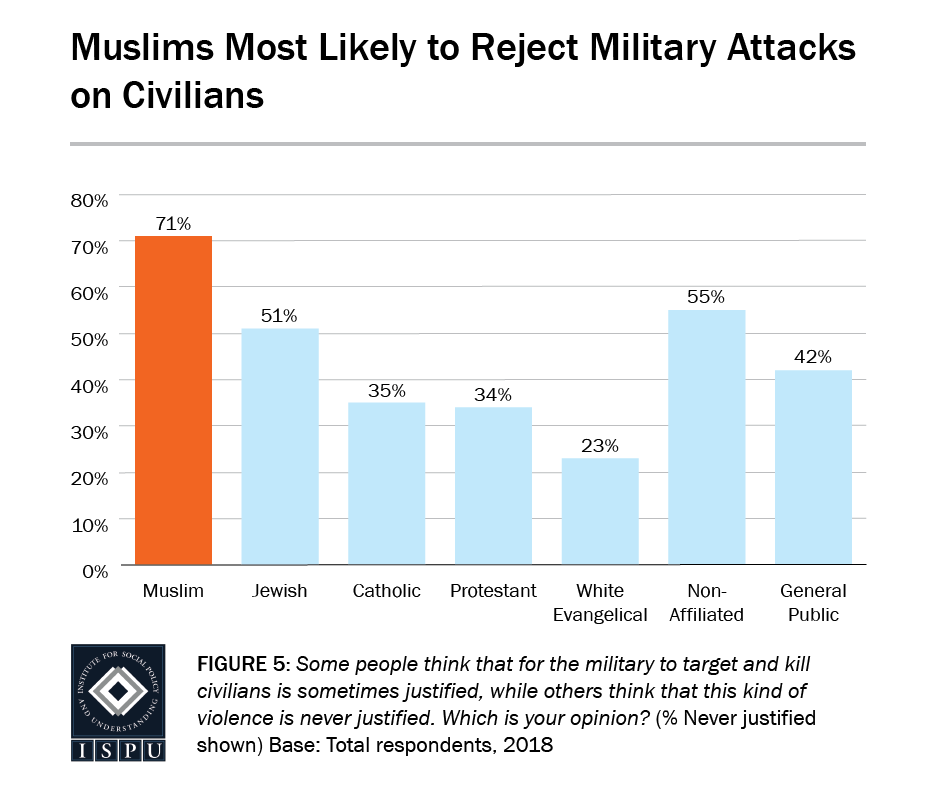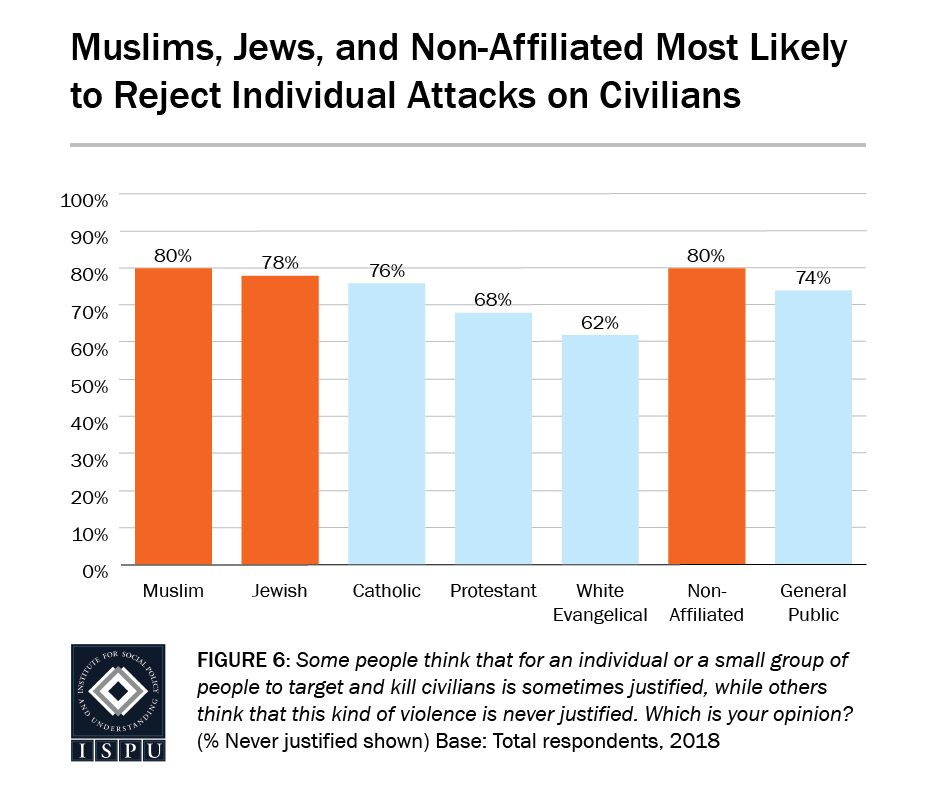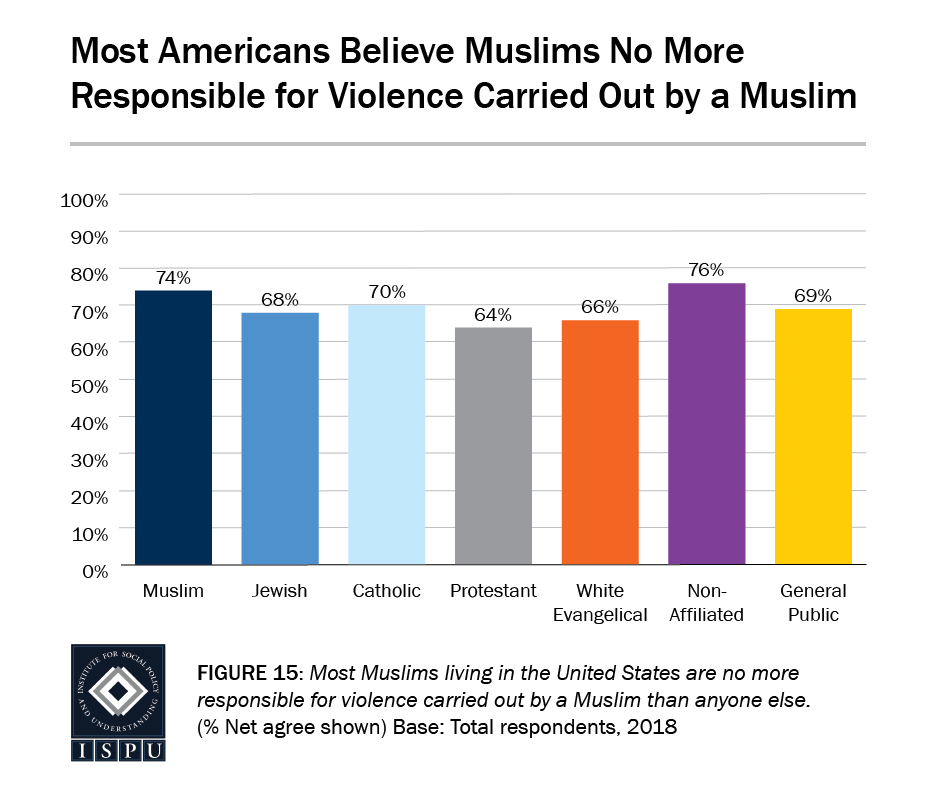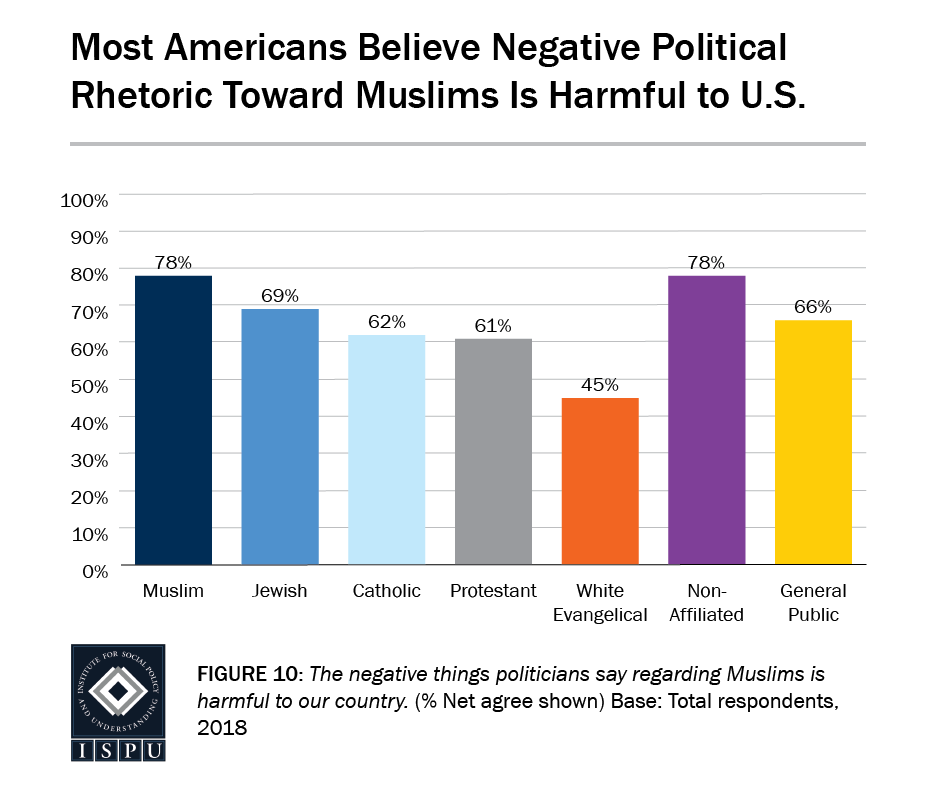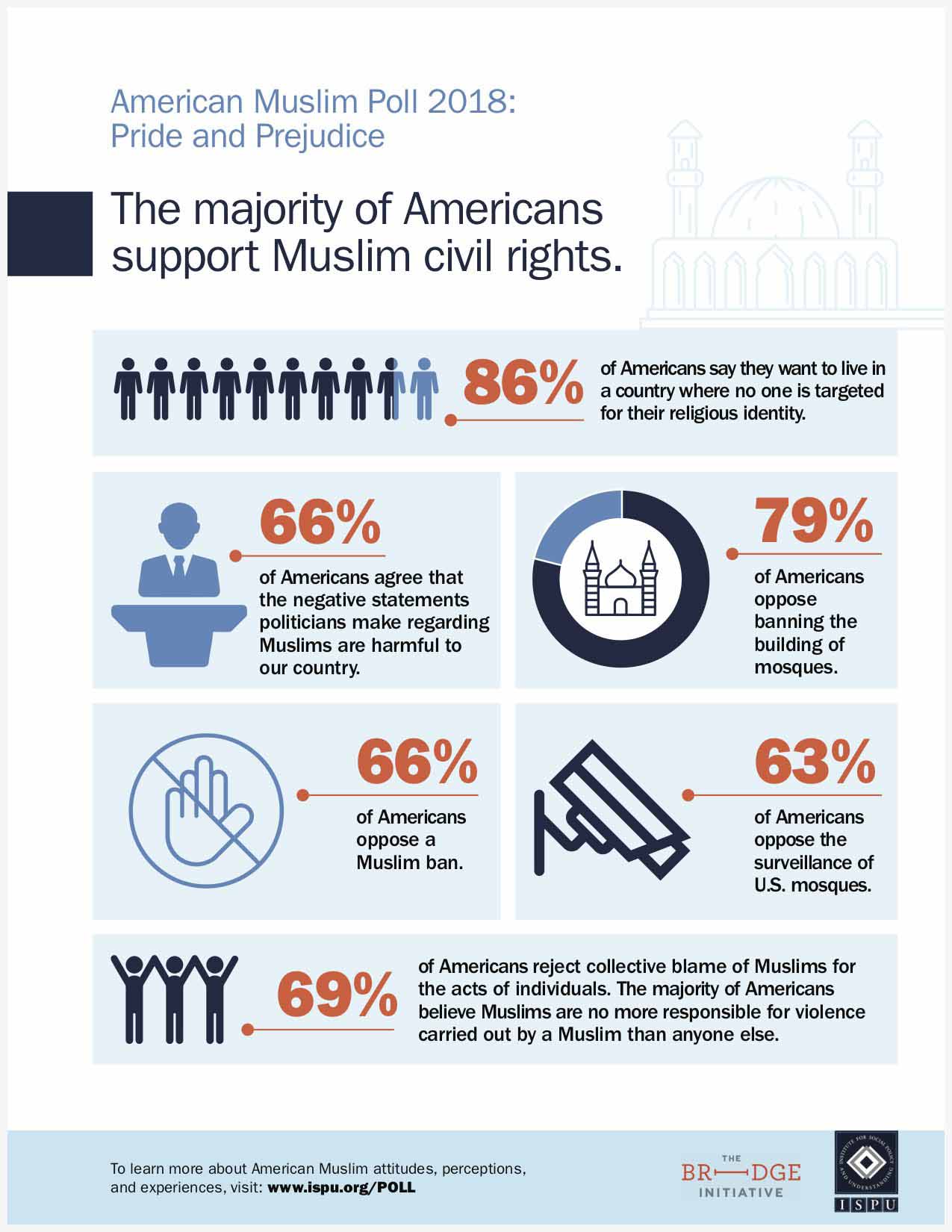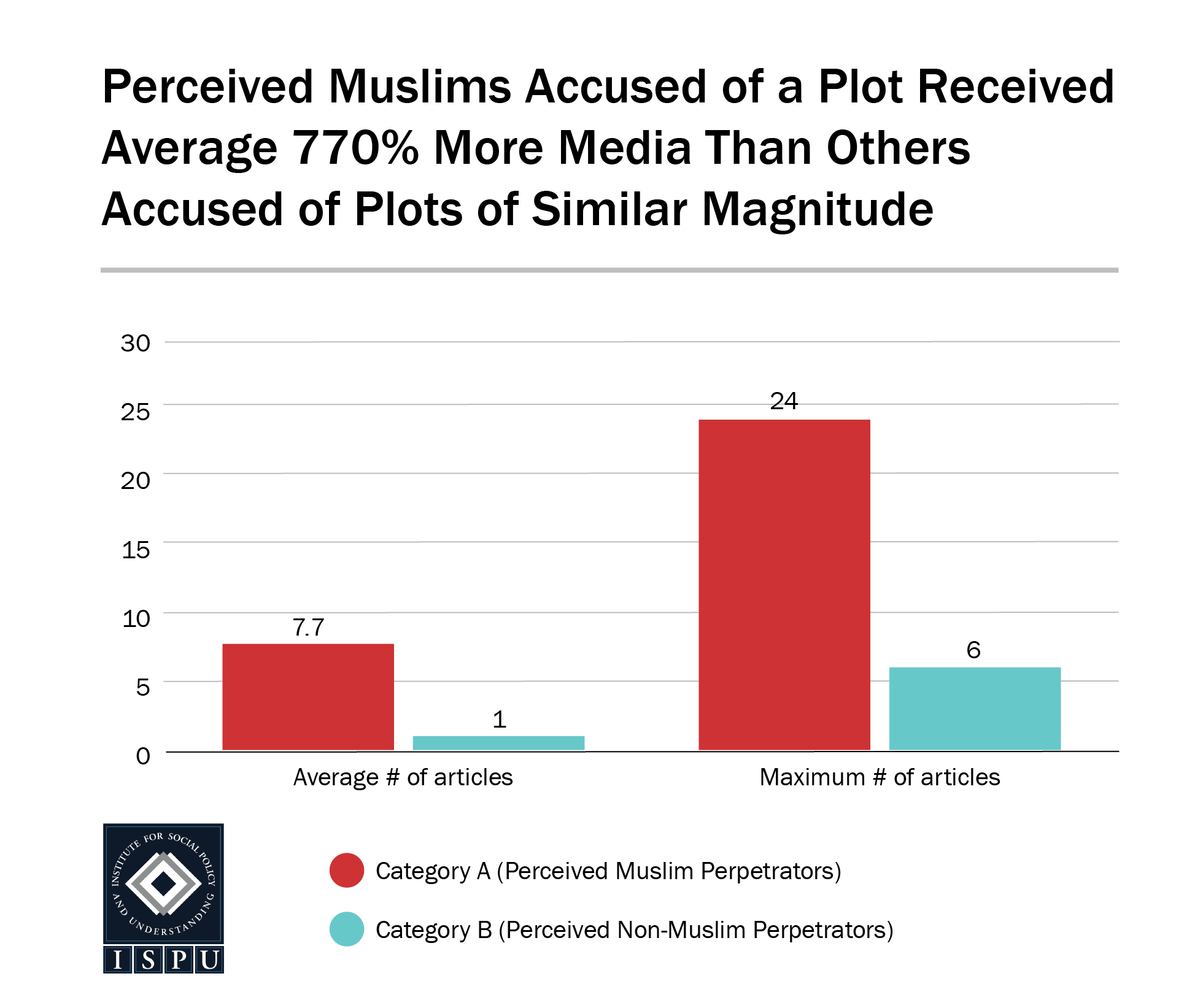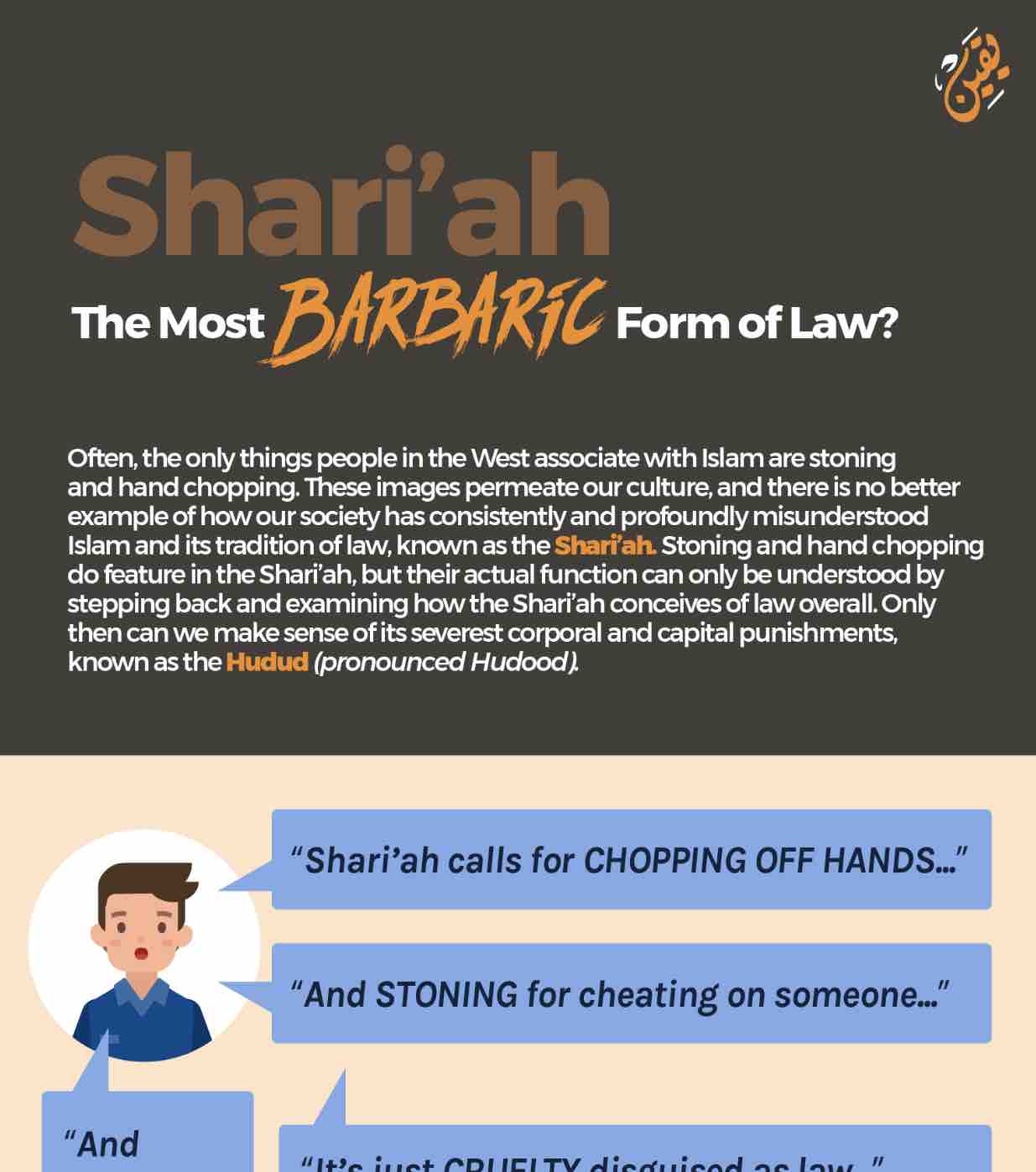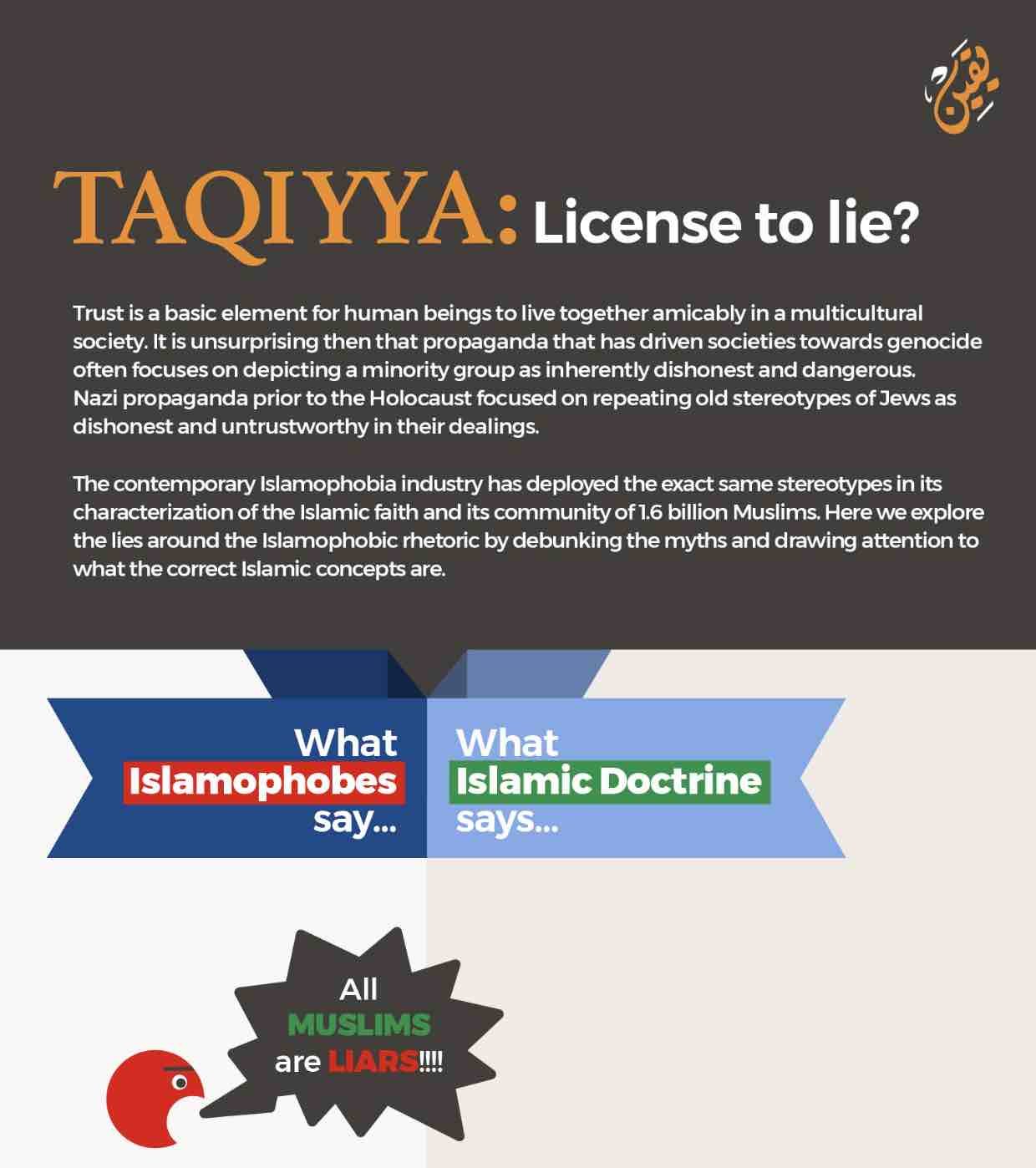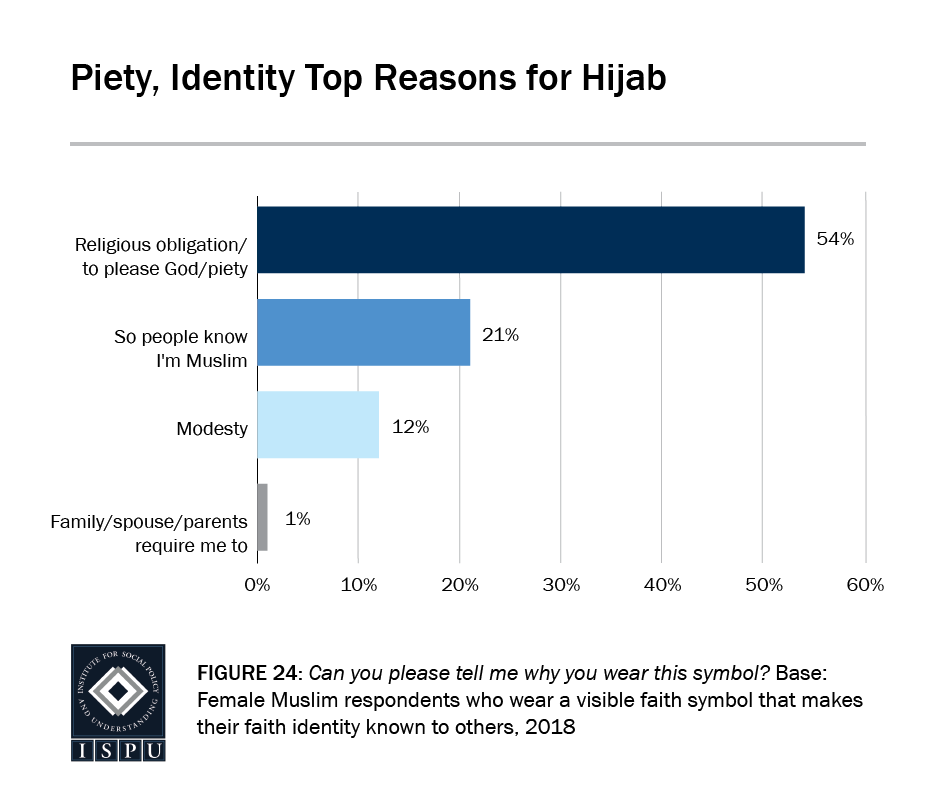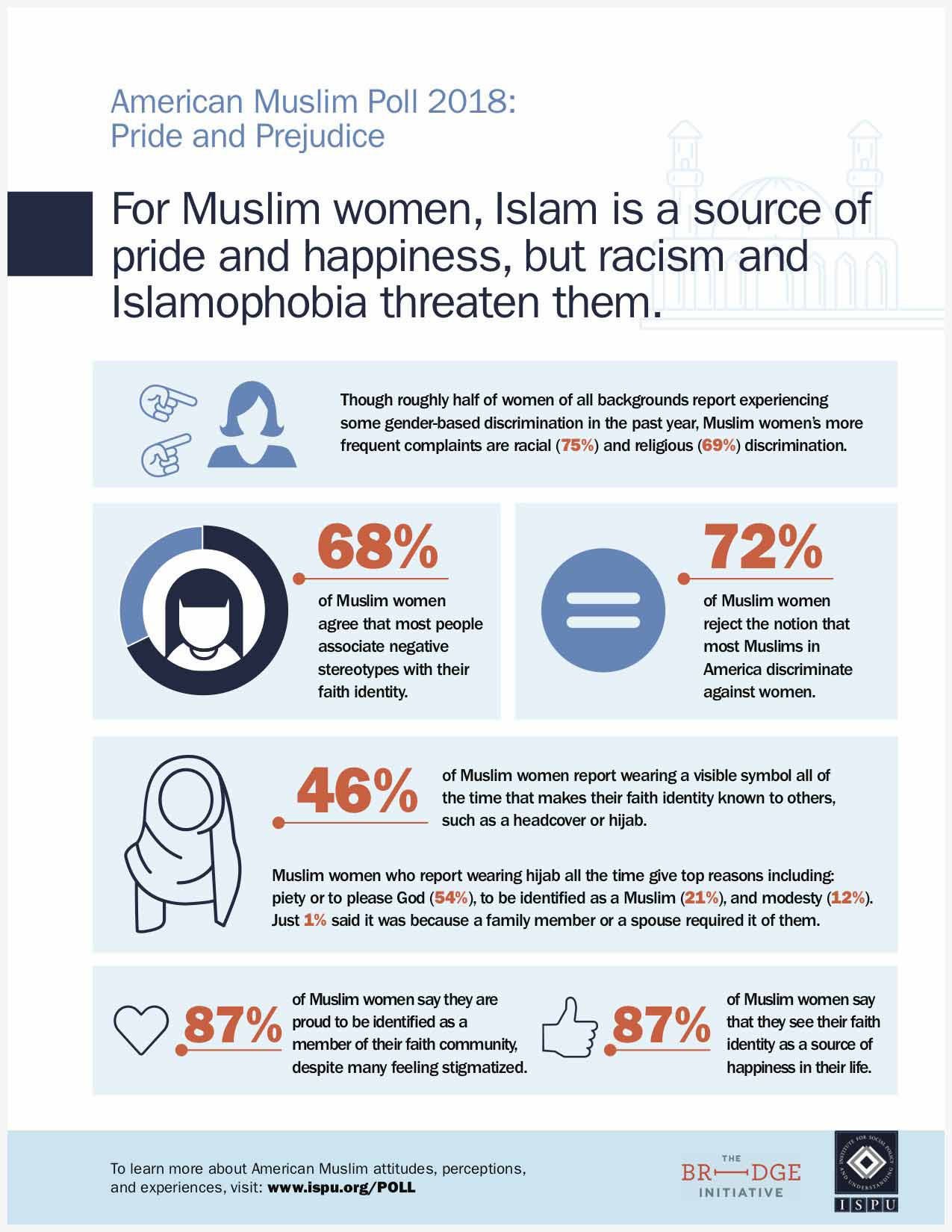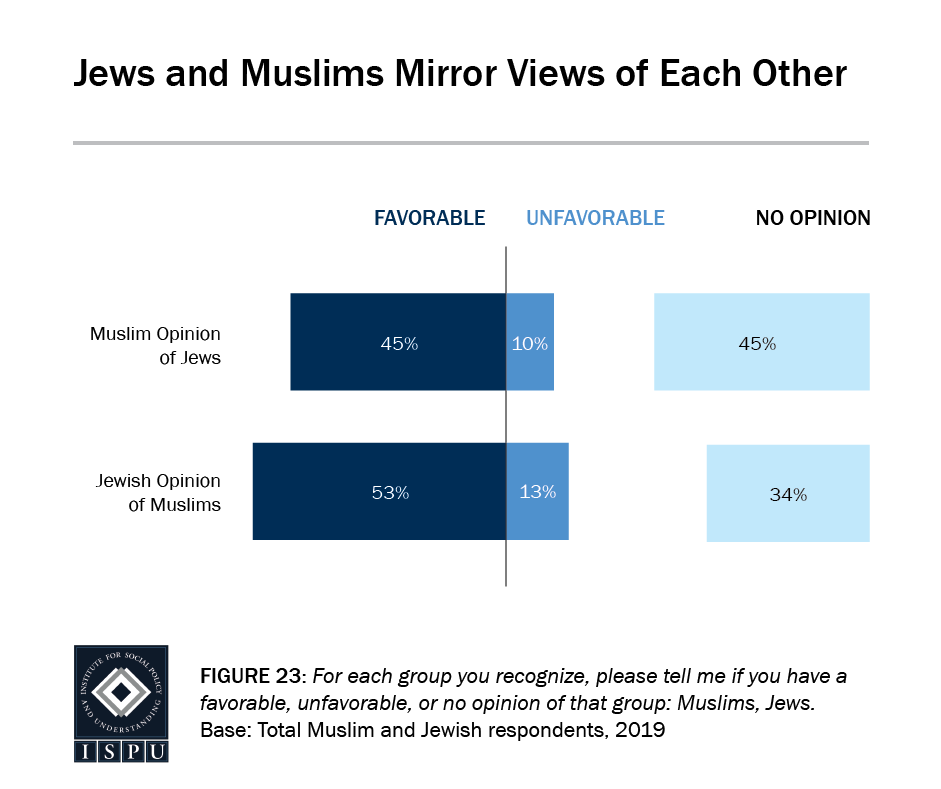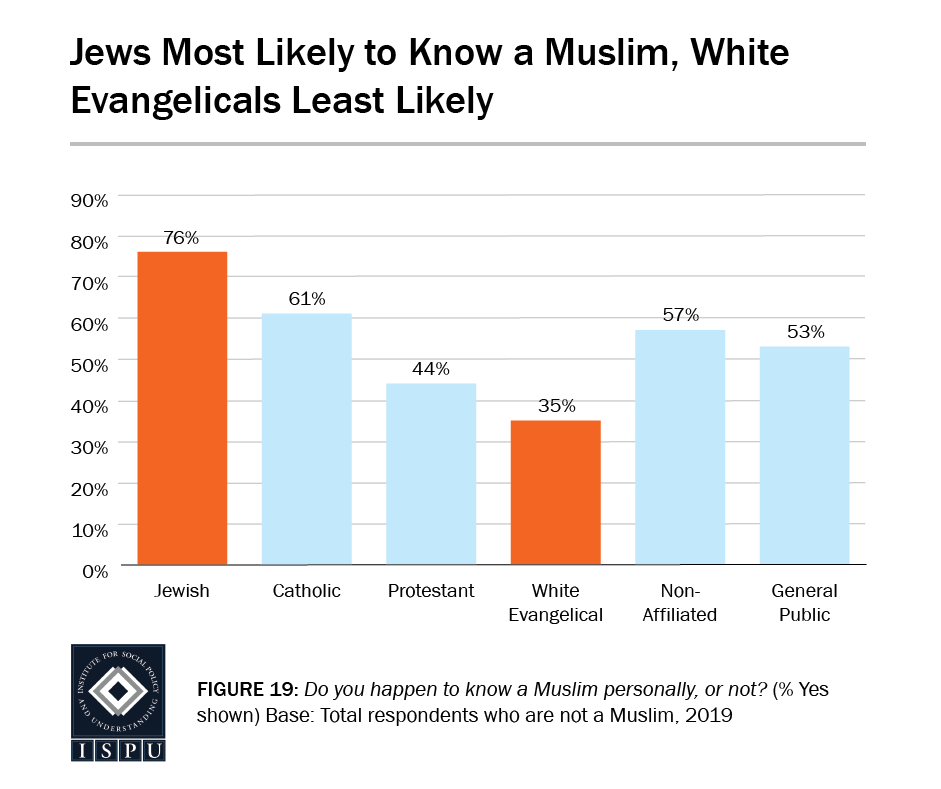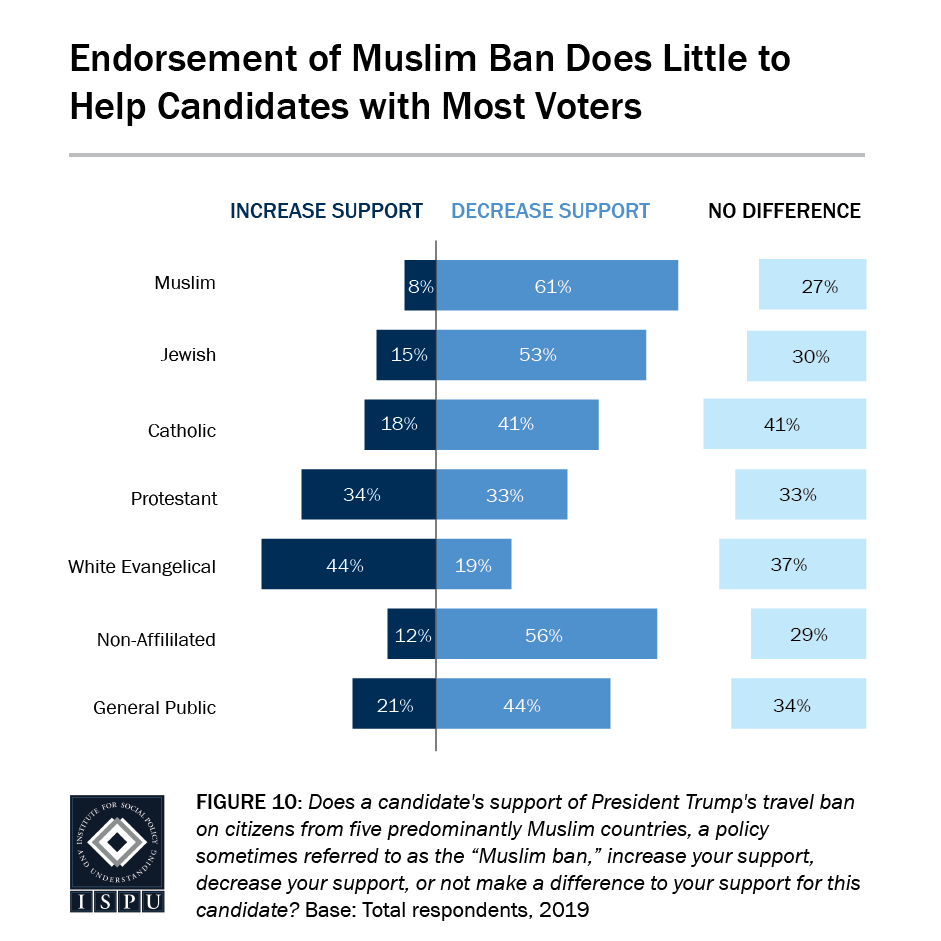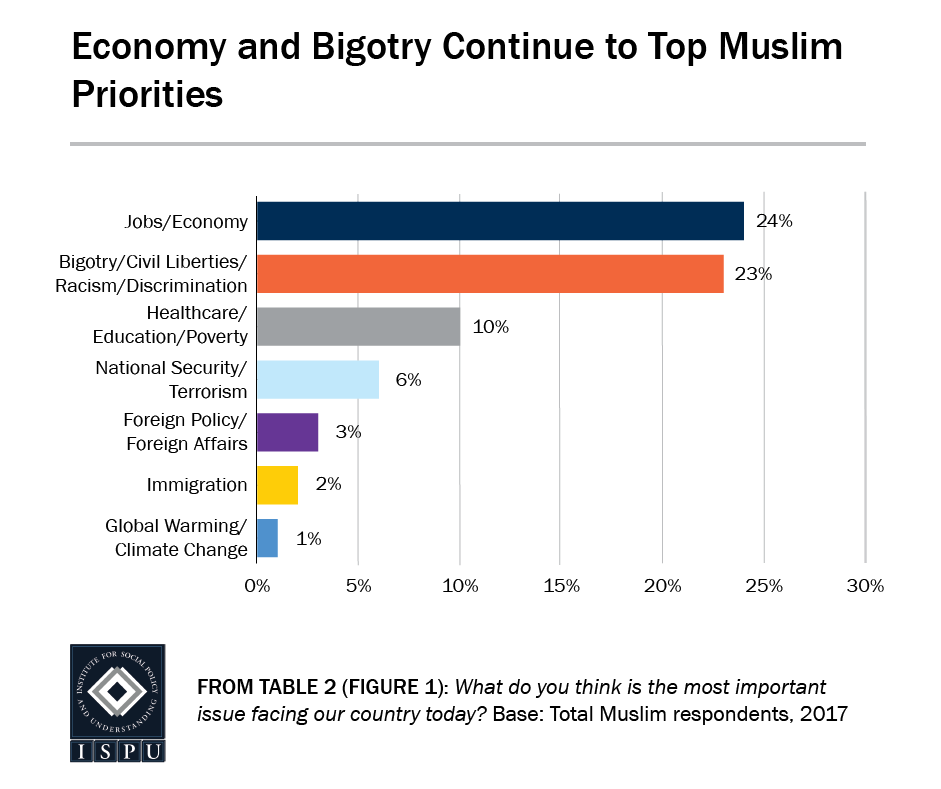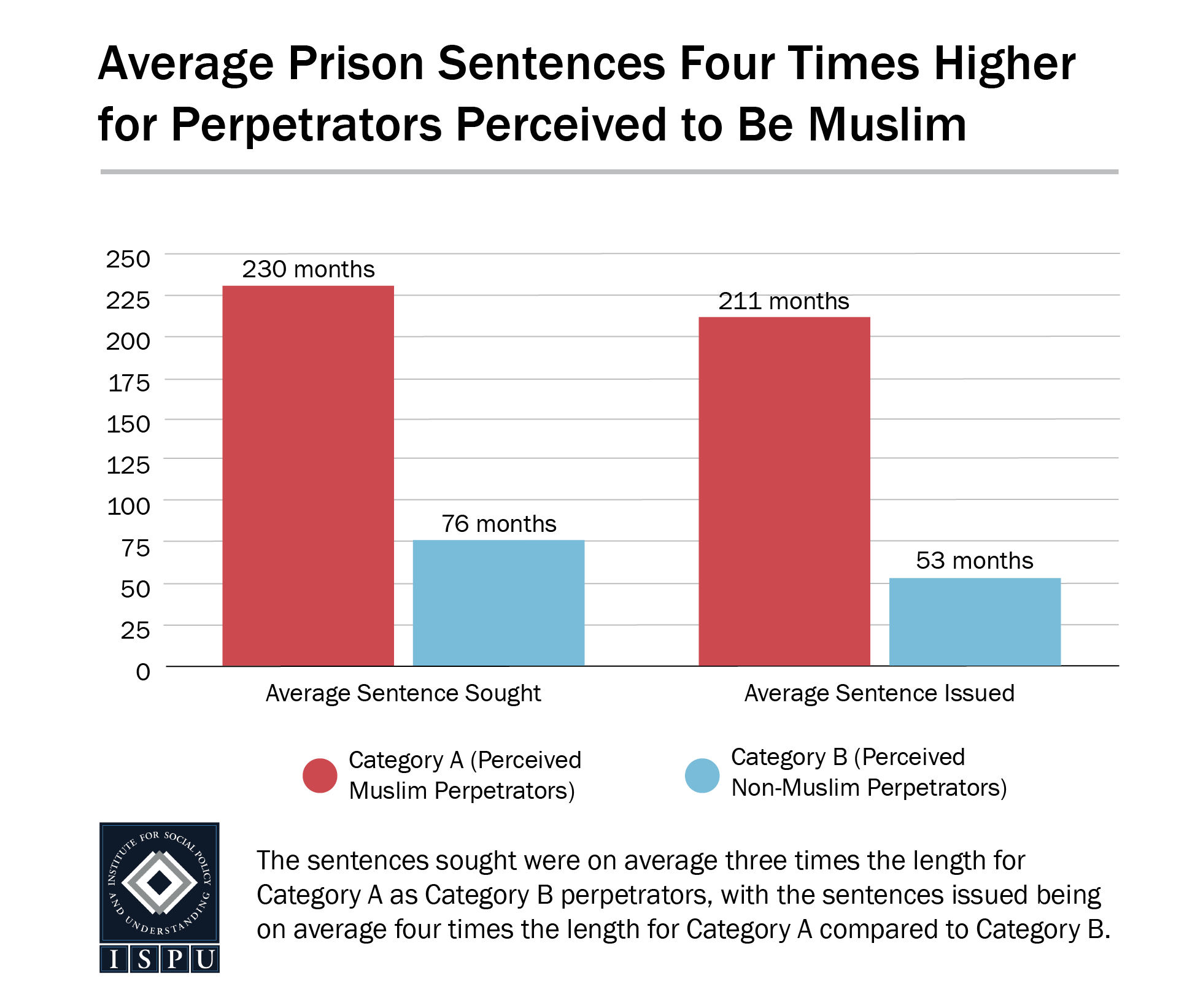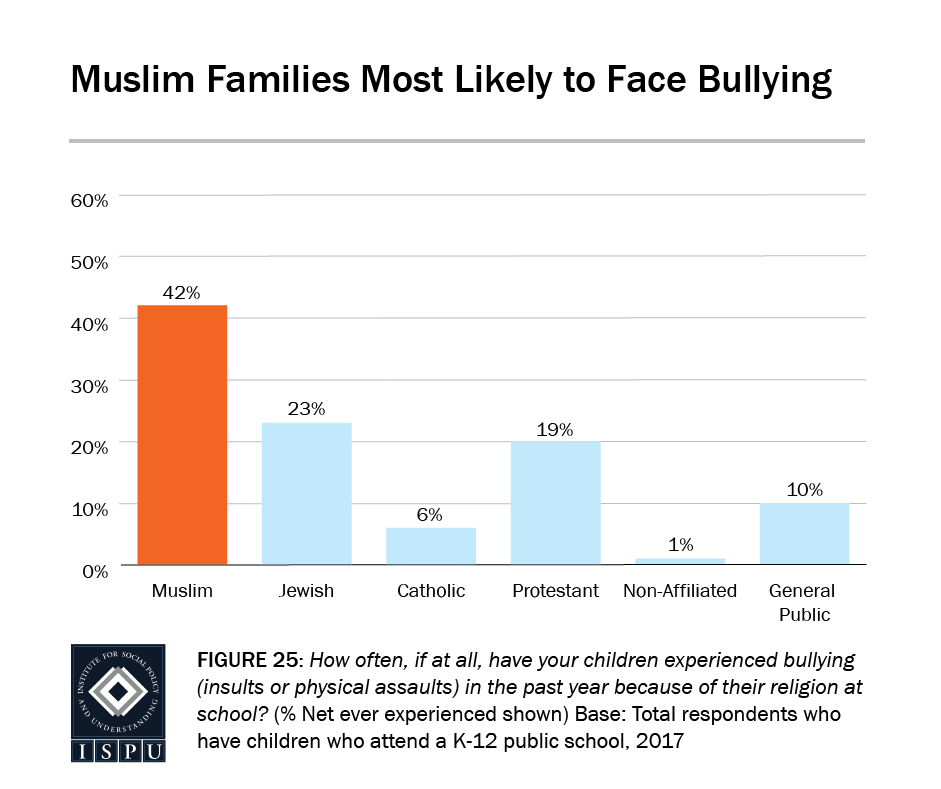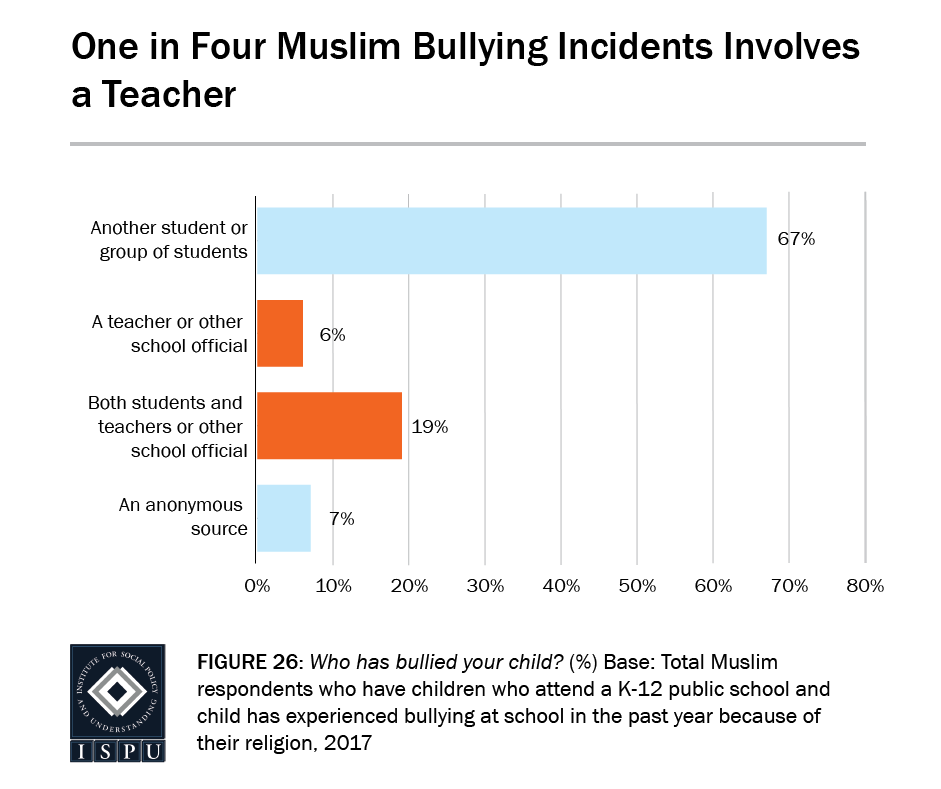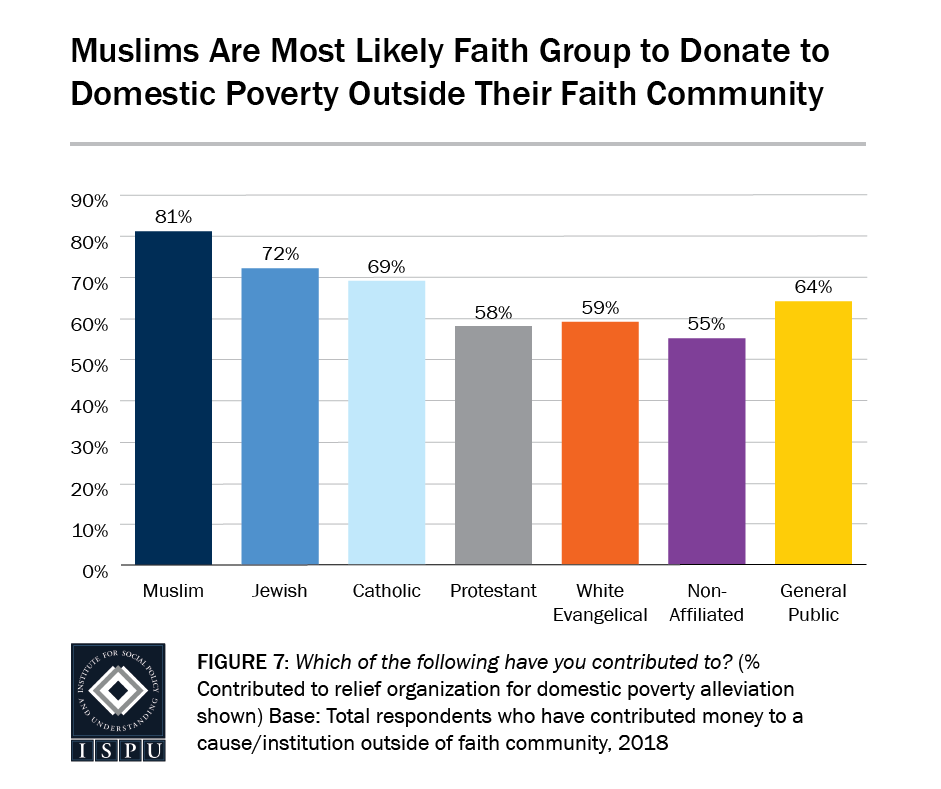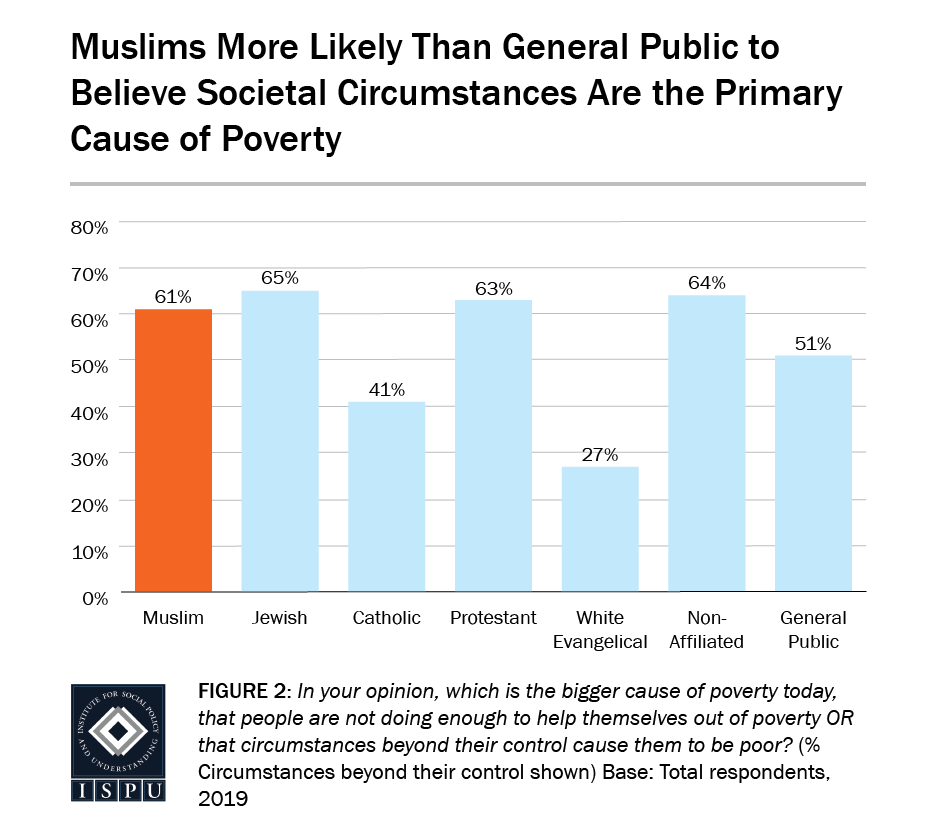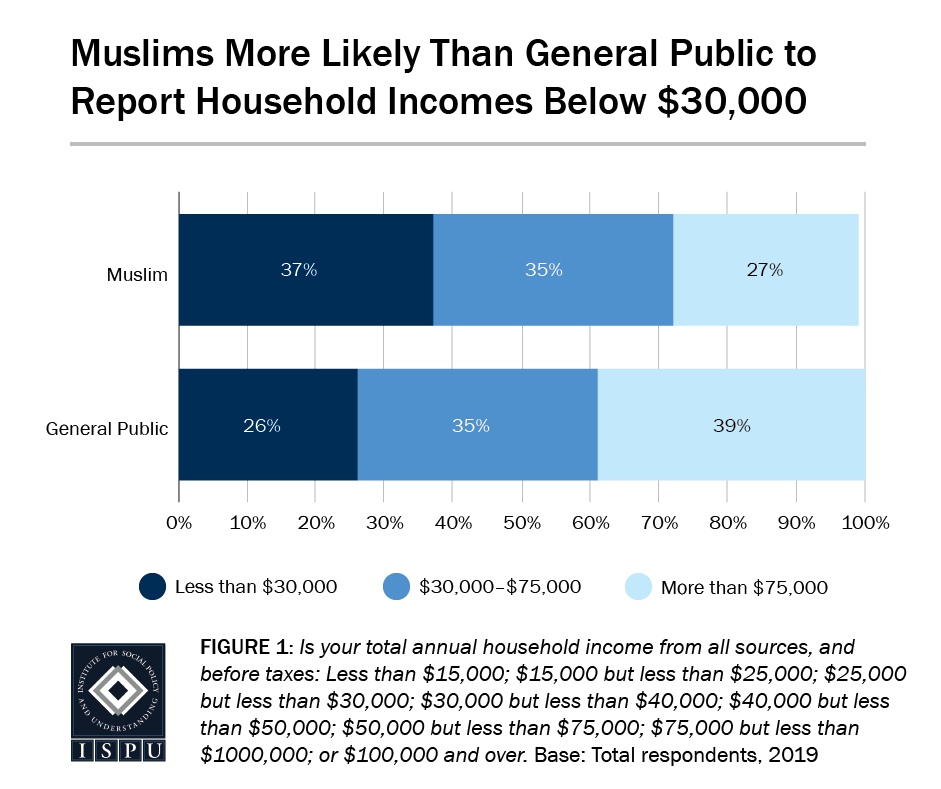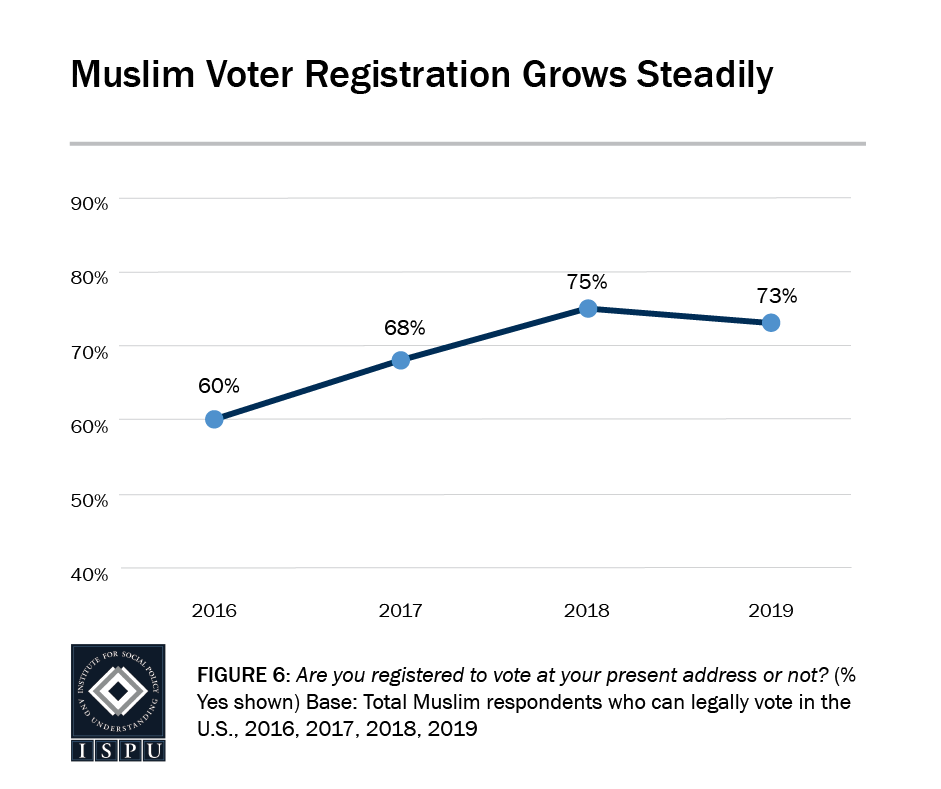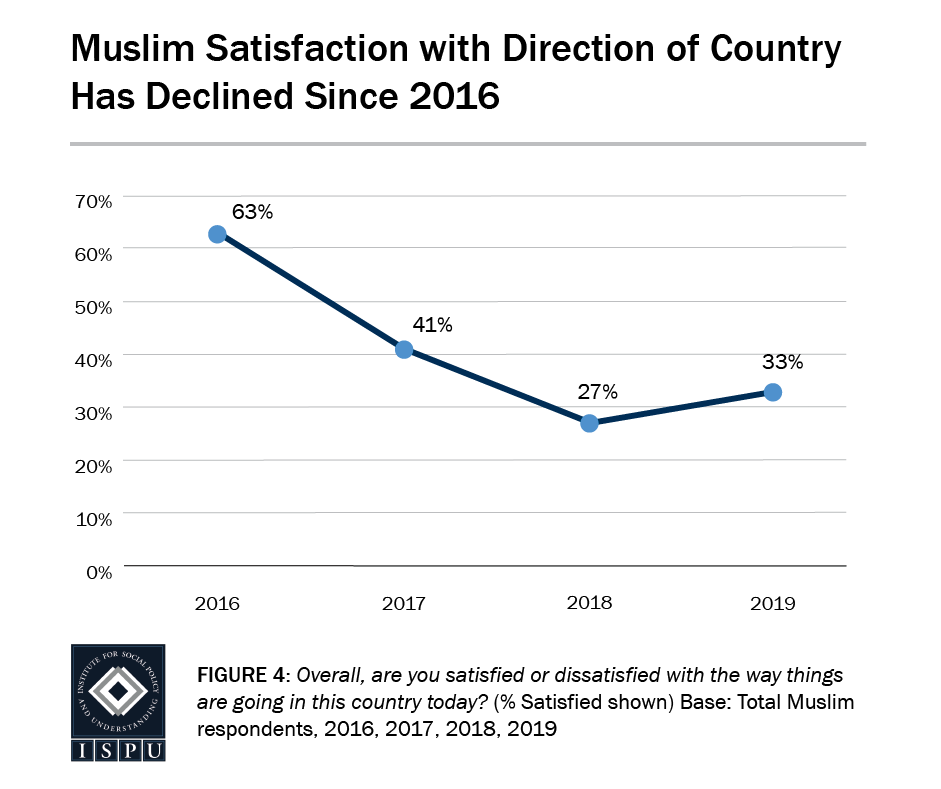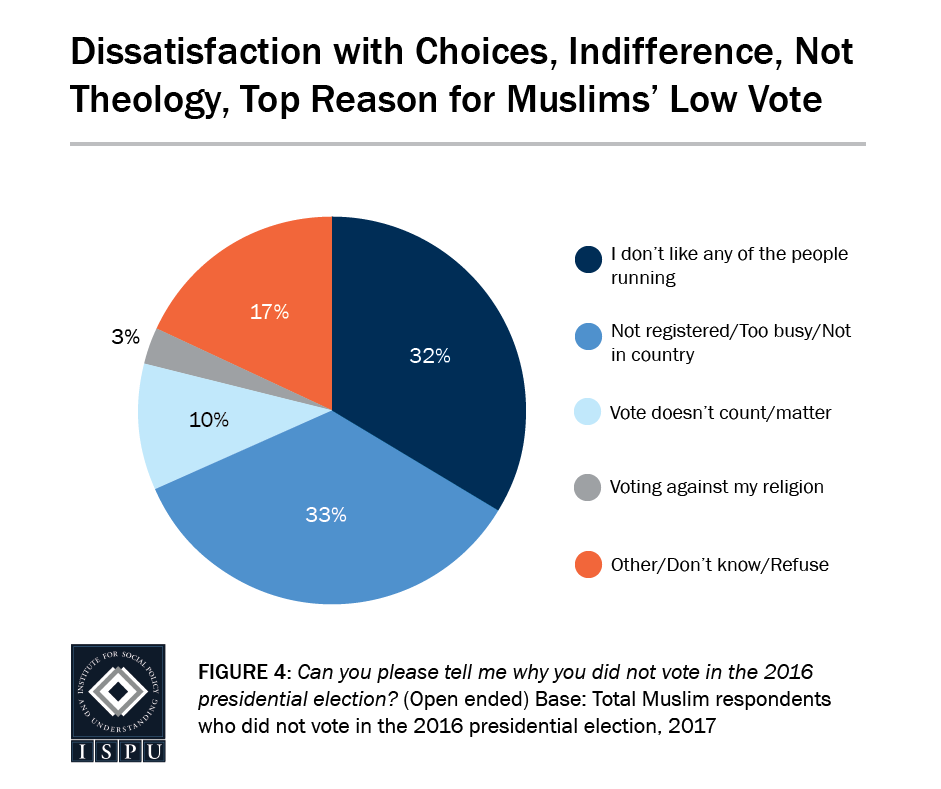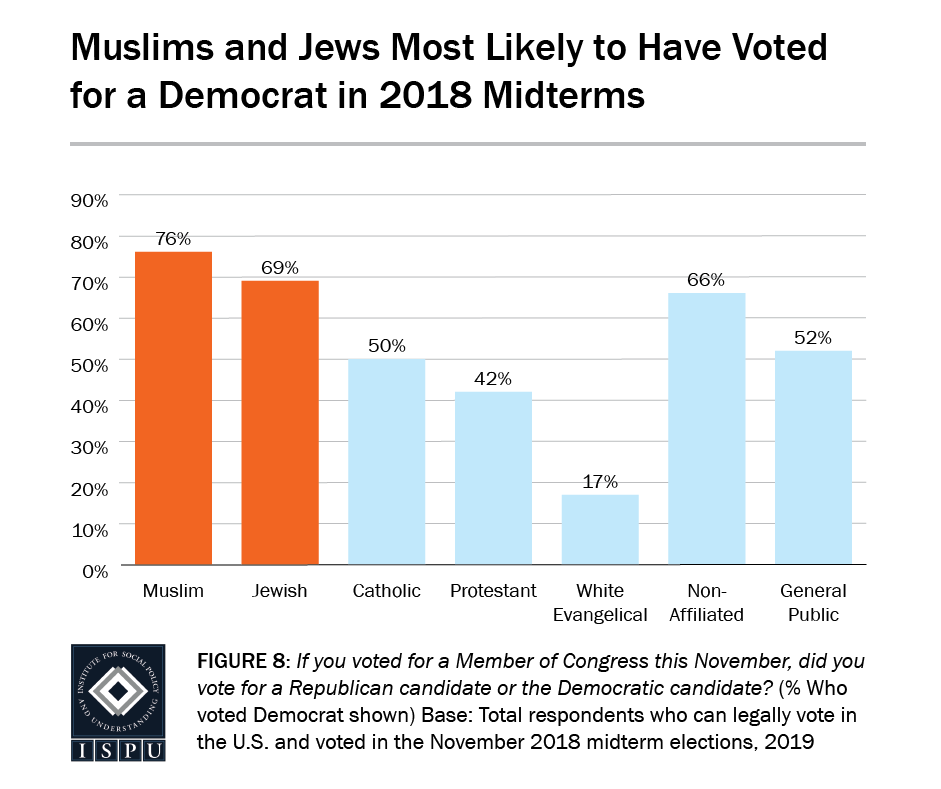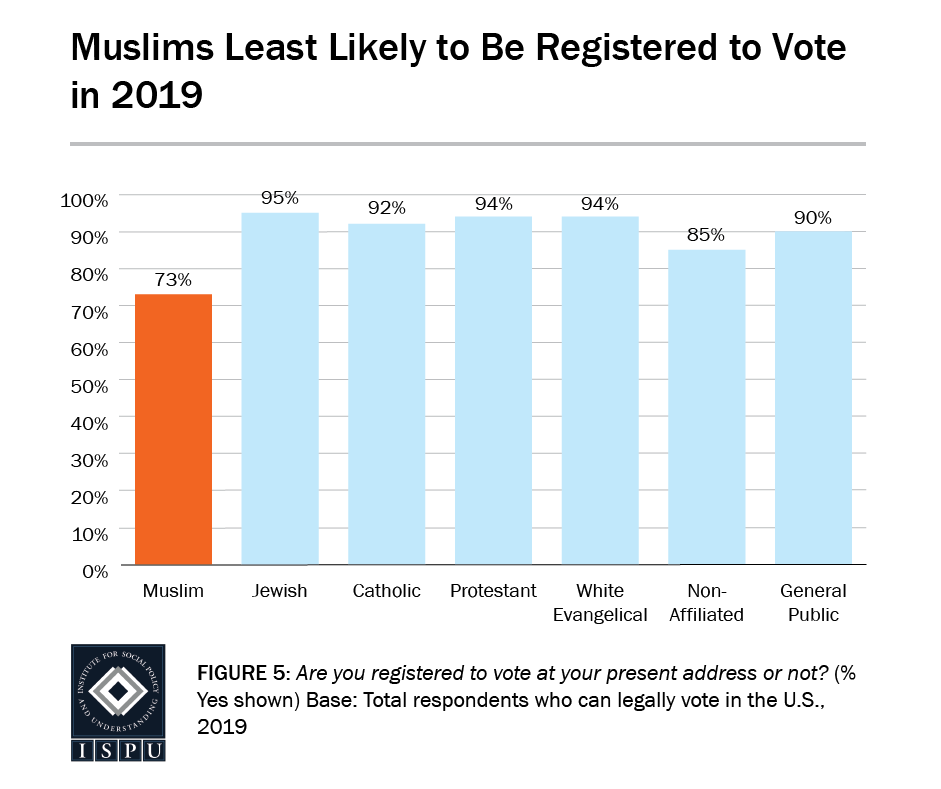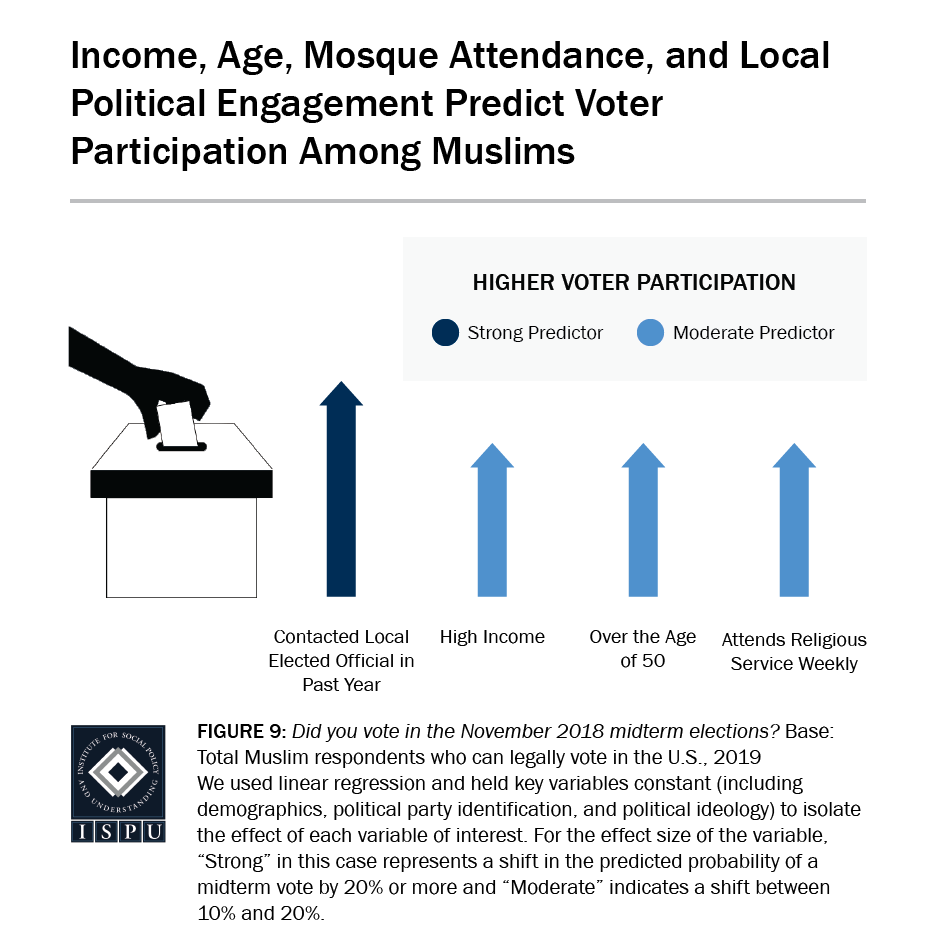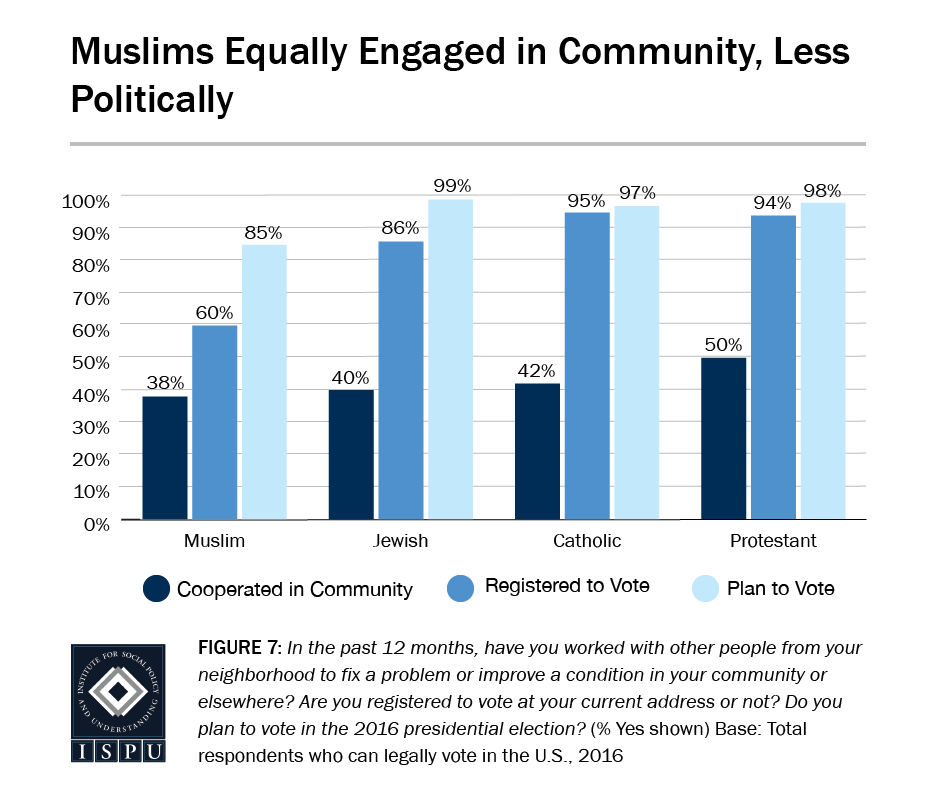.
.
Engaging American Muslims
A Briefing Book for Policymakers
Quick Links
Why This Guide? About ISPU and Yaqeen Institute
What Do Muslims Believe?
COVID-19 and American Muslims
Cutting Through the Confusion: Facts on Muslims and Islam
What Are American Muslims’ Socio-Political Priorities?
American Muslim Civic Engagement at a Glance
Muslim Contributions to America
Problematic vs. Preferred Language
What to Consider after an Incident of White Supremacist Violence Targeting Muslims or Another Marginalized Group
A Brief History of Anti-Shariah Legislation
Commonly Used Terms
Additional Resources
Contributors + Advisors
Sources
.
.
Engaging American Muslims
A Briefing Book for Policymakers
Quick Links
Why This Guide? About ISPU and Yaqeen Institute
What Do Muslims Believe?
COVID-19 and American Muslims
Cutting Through the Confusion: Facts on Muslims and Islam
What Are American Muslims’ Socio-Political Priorities?
American Muslim Civic Engagement at a Glance
Muslim Contributions to America
Problematic vs. Preferred Language
What to Consider after an Incident of White Supremacist Violence Targeting Muslims or Another Marginalized Group
A Brief History of Anti-Shariah Legislation
Commonly Used Terms
Additional Resources
Contributors + Advisors
Sources
.
.
Why This Guide? About ISPU and Yaqeen Institute
The majority of Americans say they do not know a Muslim. For many of these Americans, what they know about Muslims comes from media representations. However, according to media content analysis, more than 80% of television media coverage of Islam and Muslims in the United States is negative. Such narrow media depictions open the door to distorted public perceptions of American Muslims, especially in the absence of any firsthand knowledge of this diverse community.
This lack of accurate information, coupled with negative media portrayals, also presents challenges for elected officials who wish to knowledgeably and confidently engage Americans who are Muslim. Who are American Muslims? What do they really believe? What are their policy priorities? What should an elected official or someone seeking Muslims’ votes or support know about this group? How can elected officials best serve the needs of Muslim communities?
This guide was created to help.
The Institute for Social Policy and Understanding (ISPU) and the Yaqeen Institute for Islamic Research, two leading research and education organizations focused on the study of American Muslims and Islam, respectively, have partnered to produce this briefing book to provide policymakers with authoritative information about American Muslims and the faith they hold.
ISPU and Yaqeen Institute intend this resource to be a living document regularly updated with new research, graphs, guides, and additional resources.
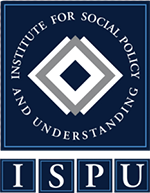
WHY ISPU?
The Institute for Social Policy and Understanding (ISPU) is a non-religious, nonpartisan nonprofit organization that provides objective research and education about American Muslims to support well-informed dialogue and decision-making. Founded in 2002, ISPU has been at the forefront of discovering trends and opportunities that impact American Muslims for almost 20 years. ISPU builds understanding and strengthens communities by laying a foundation of actionable research. As the only organization of its kind, it is the go-to source for anyone seeking objective information about Muslims in America and the issues that impact them.
Since 2002, ISPU has equipped tens of thousands of change makers including:
- Members of Congress, the Department of Justice, the White House, and other policymakers
- Media organizations
- Schools, community colleges, and universities
- Community leaders and organizations
- Faith leaders
- Law enforcement
- Nonprofit leaders
- Advocates
- And many more
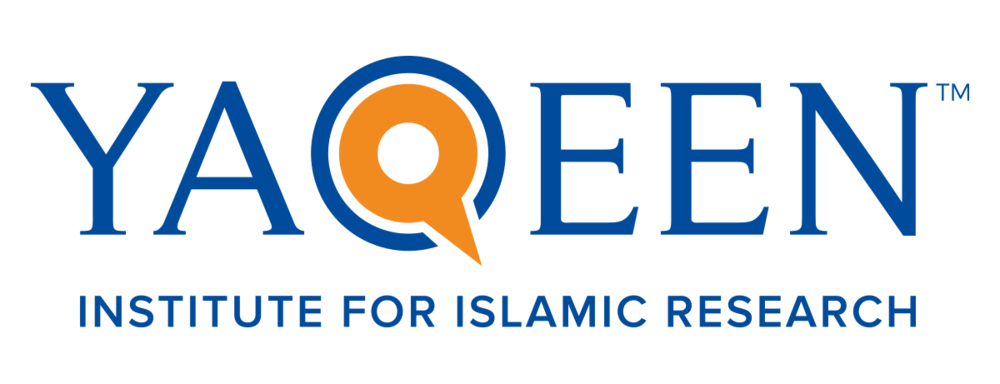
WHY YAQEEN?
Islam has a centuries long tradition of inspiring its adherents to contribute to humanity based on conviction in its tenets. Previous generations of Muslims were on the forefront of contributing to medicine, philosophy, architecture, and governance among other areas. We are an institute aiming to rekindle this tradition.
Constant negative portrayals of Islam have put Muslims in a defensive position in which they constantly have to justify their convictions, while fighting off the natural doubts and insecurities that arise in such a climate. As such, young Muslims should be intellectually equipped and spiritually anchored in a way that empowers them to deal with the onslaught of doubt-inducing claims routinely leveled against Islam.
Yaqeen Institute for Islamic Research is a nonprofit think tank launched in 2016 to counter this narrative by magnifying trusted voices within the Muslim community to tell their own story. Yaqeen is dedicated to providing academic research on Islam from foremost Muslim scholars and academics, making it an authoritative reference point on contemporary Islamic discourse and Muslim identity formation. Yaqeen aims to directly address these topics by producing quality research that is carefully disseminated through articles, surveys, journals, videos, infographics, conferences, toolkits, curriculum, mobile applications, and more. By ensuring that their content is fully accessible, Yaqeen seeks to nurture conviction in Muslims to inspire positive change and contribution to society as a whole.
Why This Guide?
The Problem→
Little understanding or misunderstanding of Islam, a lack of data on American Muslims, and a dearth of Muslim voices in policy circles in America
The Solution→
Research organizations focused on the study of normative Islam (Yaqeen Institute for Islamic Research) and the trends, opportunities, and challenges of American Muslims (Institute for Social Policy and Understanding)

ISPU PROVIDES…
Numbers
The latest survey data on American Muslim demographics, religiosity, civic engagement, contributions, and attitudes toward political and social issues
Research-Based Recommendations + Toolkits
Digestible, data-based recommendations gleaned from ISPU’s rigorous research publications in accessible formats, including toolkits, videos, and infographics
New Ideas
Background on issues seldom discussed to help bring new perspectives to understanding community and current events
Expert Input
Direct access to more 50 experts on issues related to Muslims in the United States through ISPU’s scholar network
Evidence-Based Briefings + Workshops
Signature trainings tailored to equip policymakers, media professionals, educators, and faith leaders with facts on American Muslims

YAQEEN INSTITUTE PROVIDES…
Authenticity
Research that is produced by mainstream Muslim scholars and academics that demonstrates the beauty of the Islamic tradition often obscured by Islamophobic narratives and extremist distortions
Intellectual Thought
A research engine that has published over 130 high-quality, peer-reviewed research papers on Islam
Accessibility
Academic papers systematically converted into videos, audiobooks, infographics, live broadcasted Q&A sessions, curricula, journals, and other media assets distributed online
Curriculum + Toolkits
Structured learning for Muslim institutions, media outlets, policymakers, youth groups, and self-paced individual learners looking to navigate complex topics with simplicity and cutting-edge technology
Contribution
A platform to highlight present-day efforts of Muslims who have been inspired by their faith to contribute positively to humanity, with ideas and recommendations to inspire many more
.
What Do Muslims Believe?
By Imam Omar Suleiman
Founder and President of The Yaqeen Institute for Islamic Research
- Muslims believe in One God who has sent Prophets and Messengers to humanity with revelations that serve as divine guidance for how to live purposefully and righteously. These Prophets and Messengers include Abraham, Moses, Jesus, and Muhammad (peace be upon them), who all serve as carriers of a singular monotheistic message.
- As such, Muslims hold the Quran to be the final revelation of God through the Prophet Muhammad (peace be upon him), which they recite and seek to live by in their everyday lives.
- Muslims are to pray five times a day, fast during the month of Ramadan, give an annual amount of their income in charity, and perform the Hajj pilgrimage to Mecca when able to do so.
- Muslims are taught to serve their neighbors and exemplify their commitment to God in how they treat those around them.
- They are called to be law abiding so long as the law does not prohibit them from practicing their faith.
- The Prophet Muhammad (peace be upon him) said: “None of you has faith until he loves for his brother or his neighbor what he loves for himself.” Muslim scholars have always understood this tradition to mean your brother in humanity and your neighbor in any land.
.
COVID-19 and American Muslims
Americans who are Muslim, like all Americans, have been impacted by the COVID-19 crisis in multiple ways: physically, psychologically, and, of course, financially. Below is a summary of the unique ways Muslims have responded to and experienced this global pandemic.
CONTRIBUTIONS
Americans who are Muslim are only 1% of the population, but make up a disproportionate segment of frontline workers during this pandemic. For example, in Michigan, 15% of all doctors are Muslim, and in New York City, one of the hardest hit areas of our country, Muslims make up a full 10% of the city’s medical doctors.
Muslims also make up a staggering 40% of all New York City cab drivers, an under-recognized group of essential workers risking their health every day by transporting often ill customers to doctor appointments or the pharmacy.
In addition to frontline workers, American Muslims also immediately took action to give, innovate, and organize to alleviate the suffering caused by this pandemic. Below are just a few examples.
Dr. Ali S. Taqi is an ER physician working out of three hospitals in Pontiac, Michigan, who has treated many COVID-19 patients through several night shifts in the ER. Dr. Taqi also serves as a volunteer first responder (Lieutenant) on the Troy Fire Department as well as the EMS coordinator for St. Joseph Mercy Oakland.
Suzy Ismail is the founder of Cornerstone, a New Jersey nonprofit coordinating multiple initiatives including #FeedingtheFrontlines, a partnership with New Brunswick Islamic Center to support local halal restaurants by covering the costs of meals and helping package and deliver lunches and dinners to local hospitals for doctors, nurses, and other hospital staff.
Dr. Mona S. Masood is the founder of Physician Support Line, a peer-to-peer support line made up of over 300 volunteer psychiatrists providing free support to their physician colleagues as they navigate this crisis.
CHALLENGES

Low Income Families
A third of Muslim families are low income (living at or below the poverty line), a larger percentage than any other major faith community in America. Low-income people have been among the hardest hit by the COVID-19 pandemic. Economically disadvantaged Americans are the most likely to be frontline workers, to lack access to proper healthcare, and to have no cash or credit cushion should they lose their job, magnifying the negative impact of the COVID-19 crisis on poor families.

Disproportionate Impact on Black Muslims
After racial data for COVID-19 patients in many states became available, it has become clear that COVID-19 is disproportionately impacting Black communities all across the U.S.—including and especially Black Muslims, who make up between a quarter and a third of Muslim Americans overall. The National Black Muslim COVID Coalition (BMCC) was organized to directly address this issue. Black and Arab Muslims are the most likely to report lower income, and Muslims as a faith group are the most likely of any faith community to report living at or below the poverty line.

Frontline Workers and Health Dangers
Muslims make up a disproportionate portion of frontline workers because of their large representation in the medical field and the transportation sector, especially in hotspots like New York City (for example, 40% of New York City’s cab drivers are Muslim). This comes with additional health risks of exposure, especially as personal protective equipment (PPE) remains in short supply.
.
Cutting Through the Confusion: Facts on Muslims and Islam
According to estimates, there are about 3.45 million Muslims living in the U.S., making up an estimated 1% of the U.S. population. Muslims have been part of the American fabric since before our country’s founding. Many arrived in America as enslaved people from Africa. Muslims are doctors, lawyers, musicians, marathon runners, teachers, and much more.
Yet, discussions about Muslims occupy a disproportionate space in the public dialogue. And despite empirical evidence to the contrary, many misconceptions and damaging stereotypes about American Muslims are often repeated in mainstream media and go uncorrected. The following is a data-driven portrait of American Muslims that debunks some common misconceptions.
1.
FACT: American Muslims do not have a majority racial or ethnic group.
Muslims are the most ethnically diverse faith community in the United States. ISPU’s 2019 American Muslim Poll shows that about one quarter identified as Black or African American and another quarter as Asian, while nearly one fifth identify as white and 14% as Arab. Eight percent of American Muslims identify as Hispanic.
2.
FACT: Most Muslims in America are U.S. citizens by birth or naturalization.
Half of American Muslims are born in the United States, and 86% of Muslims are Americans by birth or naturalization.
3.
FACT: A strong Muslim identity is directly correlated with a strong American identity.
In fact, stronger Muslim religious identities correlate with stronger American identities, according to data. Such data challenges the myth that Americanness and Muslimness are mutually exclusive.
As a 2016 Yaqeen study on internalized Islamophobia demonstrated, constructing a strong identity based on deep conviction and confidence can lead to a healthier young Muslim individual that feels valued and responsible for contributing to society as a whole.
4.
FACT: Muslims are one of the most likely groups in the United States to reject violence.
It has become a recurring preoccupation of media pundits and politicians to argue about whether Islam itself is violent and whether such terrorist groups can be justifiably called “Islamic.”
As Dr. Nazir Khan contends in his paper Forever on Trial—Islam and the Charge of Violence, this rhetoric is not only dangerous but dangerously inaccurate.
ISPU’s 2018 American Muslim Poll found that Muslims were the least likely of all faith groups measured to accept both military and individual violence against civilians.
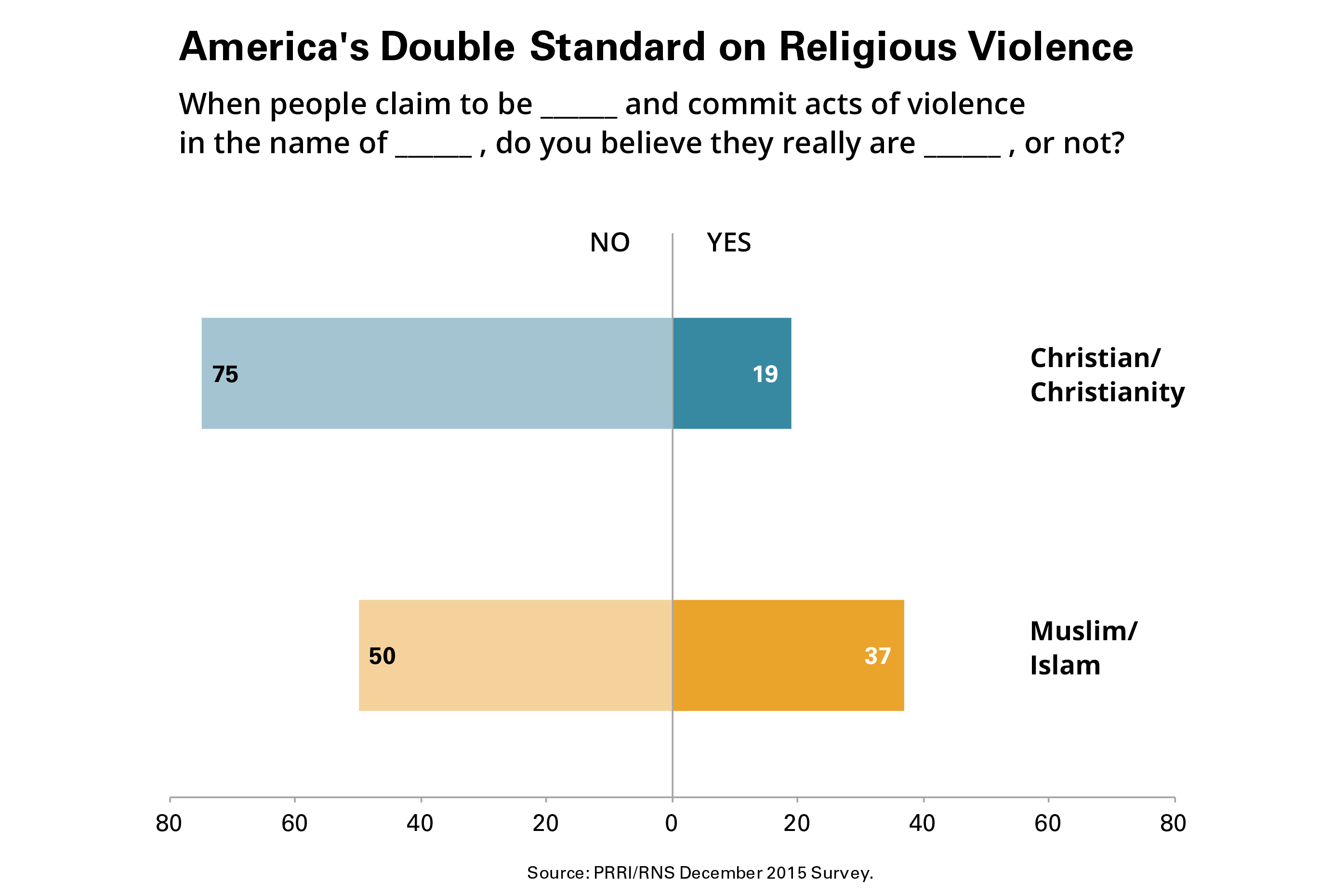
5.
FACT: American Muslim leaders and organizations have consistently and repeatedly condemned violence and denounced violent ideologies.
But should they be expected to?
Here’s one point of view: ISPU Director of Research Dalia Mogahed says, “When [acts of ideologically motivated violence perpetrated by non-Muslims] occur, we don’t suspect other people who share their faith and ethnicity of condoning them. We assume that these things outrage them just as much as they do anyone else. And we have to afford this same assumption of innocence to Muslims.”
6.
FACT: Most Americans agree that Muslims are no more responsible for violence carried out by a Muslim than anyone else.
Most Americans also agree that negative political rhetoric toward Muslims is harmful to the United States.
7.
FACT: American Muslims have been targets of government surveillance.
Americans who are Muslim have been targets of unconstitutional and unwarranted surveillance by local and federal law enforcement, and receive an average of four times the prison sentence as other Americans facing similar allegations. This is despite the fact that in 2019 most violent extremist arrests involved white supremacists.
A strong majority of Americans want to live in a nation where no one is targeted for their faith, and most Americans oppose the surveillance of mosques. Moreover, the majority of Americans support Muslim civil rights. Americans who are Muslim are as likely as other Americans to express concern about violence in the name of Islam and are more likely to reject violence in the name of any ideology. And yet their civil liberties are often violated in the name of national security.
8.
FACT: Violence by perpetrators perceived to be Muslim receives far more media attention than other types of ideologically motivated violence.
A recent study by ISPU found that perceived Muslims accused of a violent plot received more than seven times the media attention as their non-Muslim counterparts, despite similarities in their alleged crimes. Similarly, Muslim-perceived defendants accused of violent acts were referenced in the media more than four times the rate of their non-Muslim counterparts.
9.
FACT: Muslims who bring up religious-based claims in court are not attempting to change the laws of the United States.
Individual Muslims determine the role of religious rules in their lives depending on their personal beliefs. If a legal dispute arises involving one of those rules, individuals will likely find themselves in litigation, raising claims before an American judge. Anti-shariah legislation restricts the rights of American Muslims to apply religious rules to their lives, from legal matters such as how they specify their wealth is divided after their death to personal matters of devotion like praying five times a day and fasting in the month of Ramadan.
10.
FACT: The concept of taqiyya refers to a religious permission to conceal one’s faith if revealing it endangers one’s life; it is not an open license to lie.
As explained by Muslim scholars, nothing in Islam gives Muslims general permission to lie. The origin of the notion of taqiyya refers to the permissibility for Muslims to conceal their faith if identifying as Muslims puts their lives in danger. Even this concept in its most accurate form is so esoteric to most Muslims that they often only learn of it from Islamophobes.
11.
FACT: By an overwhelming margin, Muslim women choose how they dress.
ISPU recently asked American Muslim women why they wear an identifying religious symbol like hijab. Ninety-nine percent of respondents indicated that wearing hijab was a personal choice, whether for piety, the desire to be identified as a Muslim, or modesty.
12.
FACT: The overwhelming majority of American Muslim women say Islam is a source of pride and happiness in their lives.
American women who are Muslim are one of the most educated female religious groups in the United States. They also overwhelmingly view their faith as a source of happiness and a part of their identity for which they feel a great deal of pride. As described in a Yaqeen Institute publication, the rights afforded to women by Islam in the seventh century include the right to enter into a consensual marriage, to remain their own legal entities after marriage, to initiate a divorce, to receive child support, to own property, to pursue education, and to be involved in social and political affairs, long before women more broadly were afforded these rights.
Many Muslim women rise to the tops of their professions as doctors, lawyers, and scholars. A recent study suggests U.S. news media’s disproportionate focus on gender discrimination in Muslim societies, while ignoring similar issues in non-Muslim societies, contributes to stereotypes that Muslims are distinctly sexist and misogynistic.
The language of liberating Muslim women from Islam in the name of allyship serves instead to reinforce false myths about women in Islam, even in supposedly supportive spaces.
13.
FACT: American Jews and American Muslims are more likely to hold favorable than unfavorable views of each other.
In fact, according to ISPU research Jews and Muslims mirror views of each other, with about half of each group holding favorable views of the other. Furthermore, Jews are the mostly likely faith group to know a Muslim, with three in four reporting knowing a Muslim personally, compared with about half of the general public. Islamophobia and anti-semitism go hand in hand, both stemming from the larger tree of bigotry.
14.
FACT: Endorsement of the Muslim Ban does little to help candidates with most voters.
An elected official’s support for President Trump’s travel ban does not increase voters’ support for that official. Rather, a majority of Americans report that a candidate’s support of this policy either decreases their support or makes no difference to their support for the candidate.
The American Muslim Political Dilemma
By Imam Omar Suleiman, Founder and President of The Yaqeen Institute for Islamic Research
As a minority faith group, American Muslims have been prone to embrace any politician or alliance that embraces them. However, many Muslims have come to realize that the tokenization of the Muslim community usually follows a pattern of temporary embrace to permanent abandonment based on mere political convenience. There has also been a trend to only associate with Muslims who have not been viciously targeted by the billion-dollar Islamophobia industry, which seeks to demonize mainstream Muslim organizations and leaders, rendering the community unable to tell its own story and appoint its own representatives in consequential spaces. Muslims often face only conditional embrace, with the embracing parties unwilling to challenge their own Islamophobic biases and inconsistencies. When conservatives limit their calls for religious freedom to Christian religious freedom, and liberals limit their calls for inclusivity to liberal Muslims, they both betray their own professed ideals.
Muslims are not a racial group but a faith group that happens to be made up primarily of minority races. As a faith group, Muslims have binding theological commitments that do not make them disloyal citizens. They seek both the ability to preserve their faith and participate with it. That means that Muslims have concerns with religious freedom in that they seek the ability to practice Islam fully in their institutions without intimidation or legal restriction, and at the same time participate with their Islam fully by productively leading the way in combating hatred, poverty, systemic injustice, etc., without being asked to forsake what makes them uniquely Muslim.
Islamophobia is not merely anti-Muslim harassment in the public space but a complex form of bigotry that penetrates government agencies, societal trends, and media spaces, often without accountability.
How well do you know American Muslims? These facts from ISPU’s 2016 American Muslim Poll just might surprise you.
.
What Are American Muslims’ Socio-Political Priorities?

JOBS + CIVIL RIGHTS
Muslims’ top priorities for the nation are the economy and civil rights.
- Muslims, like other American faith groups, see the economy as a top priority.
- Muslims contribute disproportionately to job creation.
- Muslims are the most likely faith group to identify bigotry and civil rights as a priority.

CRIMINAL JUSTICE REFORM
Removing systematic bias in law enforcement and the criminal justice system is a top priority of American Muslims.
- Muslims, regardless of racial background, are the most likely faith group to support the movement for Black Lives.
- Muslim defendants systematically receive significantly harsher sentences than white supremacists for similar alleged ideologically motivated plots.

BULLYING
Many American Muslims also worry about their child(ren) facing religious-based bullying at school. Muslim families are the most likely faith group to face such bullying (42%). In one in four of these cases, the bully is a teacher or administrator.

DOMESTIC POVERTY
Feeding the hungry is a critical religious duty for Muslims. According to ISPU research, alleviating domestic poverty is among the most important charitable causes for Muslims in the U.S., and the majority of Muslims believe poverty is the result of bad circumstances, not bad character. Moreover, a full third of American Muslims live at or below the poverty line, the largest portion of any faith community.

RELIGIOUS FREEDOM
By Imam Omar Suleiman
Muslims wish to be able to practice their faith in their daily lives and institutions without interference. This means being able to live in accordance with Islamic scripture and not be forced to violate any religious tenets. The community seeks assurances that Muslims will be able to worship and abide by Islamic obligations without facing discrimination or being legally penalized for being faithful. Any legislation that infringes on the right of the community to live in accordance with Islamic teachings in peaceful co-existence can be perceived as threatening and bigoted. Politicians and policymakers need to take the time to understand how Muslims have felt left out of religious freedom initiatives, often led by Evangelicals, and have been made uneasy by certain proposals from liberals that seem to rob the community of self-determination.

BEYOND OUR SHORES: ADDRESSING GLOBAL ISLAMOPHOBIA
By Imam Omar Suleiman
While Islamophobia has been on the rise in the United States, Muslims in America are deeply concerned with the global dehumanization of Muslims and oppression that often is fueled by the rhetoric and policies of our own government officials. It is not just the ideologically motivated perpetrators who have attacked Muslims in places like Quebec and New Zealand and who have cited President Trump as inspiration, but the Uyghur concentration camps administered by the Chinese government, the fascism in India using white nationalist rhetoric to disenfranchise millions of Indian Muslims and occupy Kashmir, the continued denial of Palestinian dignity, and the genocide of the Rohingya Muslims in Myanmar. All of these causes, and many more, are rooted in the dehumanization of Muslims often inspired by our current Islamophobic climate. Muslims seek more unqualified affirmations of the dignity of oppressed Muslim minorities worldwide, and a consistent application of human rights standards that does not exclude the aforementioned.
.
American Muslim Civic Engagement at a Glance
Muslims are the least likely faith group to approve of President Trump’s performance. Sixteen percent of American Muslims approve of the president’s performance, compared with 27% of Jews, 37% of Catholics, 50% of Protestants, 73% of white Evangelicals, and 24% of non-affiliated Americans.
Despite disapproval of the president, one third of American Muslims express satisfaction with the direction of the country. However, American Muslim satisfaction with the direction of the country has declined over time, from 63% in 2016 to 33% in 2019.
American Muslim voter registration has grown over time. Nearly three quarters of eligible voters were registered in 2019, compared with 60% in 2016.
American Muslims and Jews are the most likely to have voted for a Democrat in the 2018 midterm elections. About three quarters of Muslims and 69% of Jews voted for a Democrat in 2018, compared with 50% of Catholics, 42% of Protestants, 17% of white Evangelicals, and 66% of non-affiliated Americans.
Income, age, mosque attendance, and local political engagement predict voter participation among Muslims.
- Weekly mosque attendance stands out as a predictor of midterm voter participation. The same holds true for the general public, where weekly attendance of a religious service is also linked to voting in midterm elections.
- Muslims lagging behind other faith communities in voter registration does not mean a lack of concern for the well-being of their country. Muslims are as likely as other Americans to volunteer in their communities to fix a problem.
Muslims are as equally engaged in community development as other faith groups.
Muslims are one of the most talked-about groups in American politics, but little is known about how they’re engaged politically… until now. Here are four data-driven ways to increase American Muslim civic participation.
.
Muslim Contributions to America
ISPU’s Muslims for American Progress study quantifies the impact of Muslims on U.S. communities across eight areas, including civics and democracy, economic development, medicine, STEM, philanthropy and nonprofits, arts and entertainment, sports, and education.
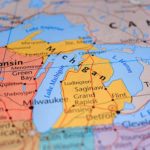
In the state of Michigan alone, for example, where Muslims make up only 2.75% of the population, Muslims contribute to every sector of society. A Michigan without Muslims would lose:
- More than 1600 new inventions
- Medical care for 1.6 million patients
- Social services for 24,000 families
- The education of 30,000 K-12 students
- The creation of 100,000 jobs
- $5.5 billion from its economy
- The representation of 2.3 million constituents
- $117 million in charitable giving

Muslims also make important contributions to New York City:
- More than 95,000 small businesses are owned by Muslims.
- Creating more than 250,000 jobs, New York City Muslims contribute $17 billion to the economy through consumer spending alone.
- Muslim medical professionals alone contribute $384 million in state and local taxes and pay over $4 billion in local wages and benefits.
- 250,000 students per year are taught by Muslim educators in NYC.
- Muslim households spend more than $1.2 billion on education in NYC, well above the average American household.
- Muslims donated over $608 million in charity in 2016, 33% more than the average American household.
American Muslim Philanthropy
American Muslims’ commitment to poverty alleviation is demonstrated through their charitable giving. ISPU’s 2018 American Muslim Poll included questions aimed at uncovering American philanthropic practices. These data-driven insights shed light on American Muslims’ commitment to charitable giving to causes and institutions within and outside of their faith community.
What would an America without Muslims look like? Watch this short video based on ISPU’s Muslims for American Progress (MAP) project to learn more.
.
Problematic vs. Preferred Language
PROBLEMATIC
These words have been politicized, misrepresented, or misused, and are often used as slurs.
Terror(ist/ism)
According to a recent study, the word terrorist was used in media headlines far more often in reference to perpetrators perceived as Muslim than those who are not for similar ideologically motivated crimes.
PREFERRED
These are neutral, clear, informative alternatives to commonly misused words.
When speaking on ideologically motivated violence, use fact-based language to describe groups, persons, and events at hand. For example, describe perpetrators as “militia,” “gunmen/women,” “bombers,” etc. Calling them “Islamic” gives them a sense of religious validity they do not deserve.
As Imam Omar Suleiman, founder and president of Yaqeen Institute, stated in an article for The Dallas Morning News, “When Islamophobes, politicians, or pundits deem these groups to be ‘Islamic,’ they give them a sense of legitimacy and authority that actual Muslims do not endow them with. They make it harder for us as Muslim scholars to address these degenerates for what they are: outcast criminals. They have no claim to our text. They have no authority in our midst.”
PROBLEMATIC
Islamist (ism)
According to the Merriam-Webster dictionary, this term refers specifically to “a popular reform movement advocating the reordering of government and society in accordance with laws prescribed by Islam.” The majority of these movements are nonviolent and should not be lumped together with those claiming Islam sanctions their violence.
PREFERRED
There is no causal relationship between religious adherence and violence. The Lord’s Resistance Army and the Ku Klux Klan aren’t lumped together as “Christianist terrorists,” even though both claim to act in the name of Biblical teachings. Instead the group’s name is used. Do the same for all groups.
PROBLEMATIC
Jihad
Literally, the word jihad means “struggle” and most often refers to the inner struggle against one’s own evil impulses, such as greed, anger, and malice. According to Muslim theologians, armed jihad is a heavily regulated military engagement where non-combatants, livestock, and even trees cannot be harmed.
PREFERRED
Individuals who commit ideologically motivated violence and claim their actions are sanctioned by Islam should not be referred to as engaging in “jihad,” nor should they be called “jihadis” or “jihadists.” Use fact-based language to describe groups and events. Use the same standards when describing ideologically motivated violence in your communications.
PROBLEMATIC
Islamic State
The group that refers to itself as “The Islamic State,” known also as ISIS/ISIL, has been denounced by nearly every major cleric of Islam as violating normative Islamic teachings.
PREFERRED
Current guidelines recommend Daesh, which is the acronym of ISIL in Arabic, just as Hamas, which is the acronym for a longer Arabic name for the group, is used regularly. Current AP style guidance doesn’t use “The Base” for Al-Qaeda. Similarly, don’t translate other words. In all instances possible, use accurate, unloaded terms. The alternatives are ISIS/ISIL.
.
What to Consider after an Incident of White Supremacist Violence Targeting Muslims or Another Marginalized Group

1.
Consider the wider social norms that have normalized Islamophobia and other forms of bigotry rather than casting the horrors of this attack as coming out of nowhere.
According to the Institute for Social Policy and Understanding (ISPU) and Georgetown’s Bridge Initiative’s Islamophobia Index, endorsing a set of five anti-Muslim tropes—like those outlined in the manifesto of the New Zealand shooter—is directly linked to support for violence targeting civilians. Bigotry is not only immoral, it is also lethal.

2.
Raise public awareness about the growing threat of white supremacy.
Violence committed in the name of white supremacy kills more Americans than any other type of ideologically motivated violence, yet it is not taken seriously. According to ISPU’s research, outlined in Equal Treatment?: Measuring the Legal and Media Responses to Ideologically Motivated Violence in the United States, foiled ideologically-driven violent plots involving perpetrators perceived to be acting in the name of Islam received 770% more media coverage than those involving perpetrators acting in the name of white supremacy. This lack of coverage inhibits public awareness of the growing threat white supremacy presents to targeted communities and our collective national security.

3.
Avoid using mental illness as speculative motivation for the attack.
We must be cautious not to diminish acts of violence by casually and without evidence using the language of mental illness. This is unfair to people who are living with a mental illness, who are more likely to be victims of violent crimes than perpetrators of them. Blaming this act on mental illness is a way to deflect accountability and dismiss the violence as an aberration rather than the product of a systemic societal problem of tolerating and perpetuating Islamophobia and racism.

4.
Do not derail the focus by changing the subject to gun control.
While gun control is indeed important, now is the time to focus the national conversation on the climate of hate that allowed this attack to take place. Data from ISPU’s 2017 American Muslim Poll shows that American Muslims disproportionately feel the negative effects of the United States’ political climate, including increased instances of religious- and race-based discrimination. Muslim women in particular are likely to experience religious discrimination (68% vs. 55% of men) and increased fear for their safety from white supremacist groups (47% report being afraid vs. 31% of Muslim men). Children suffer, too. More than 40% of American Muslim families report bullying of their kids in school because of their Muslim faith.

5.
Be aware of disparities in the legal system.
ISPU found distinct disparities in legal consequences when comparing cases involving Muslim perceived defendants versus non-Muslim defendants, all accused of similar ideologically motivated violent plots. For example, despite nearly identical facts, 82% of Muslim-perceived defendants were tried as terrorism cases, compared with 17% of non-Muslim defendants. Muslim-perceived defendants received on average four times the prison sentence as non-Muslim defendants for similar foiled ideologically motivated violent plots. Moreover, the majority of Muslim-perceived defendants (three out of four) had the fake “bomb” in the alleged plot supplied to them by undercover law enforcement, compared to one in four of non-Muslim defendants.
Hate crime or terrorism? Lone wolf or extremist? These words are often used to describe ideologically motivated violence in the U.S., and their use by officers of the law and members of the media has impact on real cases. ISPU’s Equal Treatment? report examines cases in which perpetrators of similar crimes receive dramatically different legal and media responses. Watch this short video to learn more.
A Brief History of Anti-Shariah Legislation
Anti-shariah legislation represents the reach of Islamophobia into the legal and policy sphere. This movement was initiated in January 2006 when an attorney started the Society of Americans for National Existence (SANE). In a report analyzing anti-shariah initiatives, ISPU Scholar Asma Uddin writes, “On its website, the attorney proposed a law that would make observing shariah, which he compared to sedition, a felony punishable by twenty years in prison. He also began raising money to study whether there is a link between ‘Shariah-adherent behavior’ in American mosques and support for violent jihad. The project, called ‘Mapping Shariah,’ connected him to a network of former and current government officials, security analysts, and grassroots political organizations.”
The attorney went on to write language for a “model statute” that bars state judges from taking foreign laws or rulings that violate U.S. constitutional rights into consideration. Developed in 2009, this model statute is titled “American Laws for American Courts” and has since been used in bills across the country. Between 2011 and 2017, 177 anti-shariah or foreign law bills were introduced in legislatures across the country.
What is Shariah?
- Shariah literally means a path that leads to water.
- It refers to how Muslims are to conduct all aspects of their lives in accordance with God’s revelation.
- Shariah is not a law code, printed and bound in volumes, but the idea of God’s way that is interpreted from divine sources with much diversity.
- The human effort to mine divine sources and construct concrete, applicable rules from the abstraction of shariah is known as fiqh.
- Shariah to Muslims is similar to what halacha is to Jews in that it’s an ideal standard for living a godly life.
- Harsh penal codes that have been associated with the shariah are often fabricated or decontextualized, serving as a scare tactic to play into stereotypical portrayals of Muslim barbarity.
Shariah in an American Context
- American Muslims’ request that the law recognize their choice to apply religious rules to their lives is not a demand that such rules be legislated for everyone.
- Muslims who bring up religious-based claims in American courtrooms are not attempting to change the prevailing secular law or force anyone else to follow shariah.
- Legal disputes involving the application of religious rules to the life of an American Muslim should be subject to the same constitutional scrutiny as any other contract.
- Judicial respect for shariah-based practices exemplifies how Americans value religious freedom and religious pluralism without discriminating between religions.
Examples of Shariah in the Life of an American Muslim
For Muslims, shariah serves as a code of ethics covering different facets of life. Common examples of rules embodied within shariah that impact the day-to-day life of American Muslims include:
- Personal acts of devotion like the five daily prayers and fasting during the month of Ramadan
- Dietary rules, such as prohibitions on alcohol and pork
- Financial guidelines, such as prohibitions on gambling and usury
- Personal morality
- Injunctions to feed the poor and contribute to charitable causes
- Personal and collective efforts to protect the environment
Common examples of how shariah is used in the American legal context include:
- Business contracts
- Family law, such as divorce proceedings, child custody, and child support
- Inheritance law
The Problem with Anti-Shariah Legislation
- Anti-shariah legislation restricts Muslims’ constitutional rights and religious freedoms by limiting the practice of their faith in personal legal matters, for example, in business contracts and family law.
- An aggressive anti-Muslim campaign has posited that shariah is “creeping” into American law and is a threat to American democracy. However, such claims from anti-Muslim activists and pseudo-experts sorely miss the mark. American Muslims only request the law recognize their right to apply religious rules to their lives. In fact, it would be against shariah to apply these rules to someone who is not Muslim.
.
Commonly Used Terms
The diversity of Muslim communities results in a wide array of terminology. Here are some commonly used terms:
Alhamdulillah
“Thank God”
Allahu Akbar
“God is greater”
Aqeedah
Religious creed
Eid
A Muslim holiday
Eid Al-Adha
Holiday that marks the sacrifice of Abraham coinciding with the Hajj pilgrimage
Eid Al-Fitr
Holiday that marks the end of Ramadan, the Islamic holy month of fasting
Fard
An Islamic term that denotes a religious duty commanded by God
Fatwa
A religious opinion given by an Islamic scholar or jurist
Fiqh
Islamic jurisprudence
Hadith
Traditions containing sayings and actions of the Prophet Muhammad
Hajj
Pilgrimage to Mecca
Iftar
A meal eaten by Muslims breaking their fast after sunset during the month of Ramadan
Imam
A Muslim prayer leader; can also mean congregation leaders that fulfill organizational and pastoral needs of a mosque
Inshallah
“God willing”
Juma’ah
Friday noon prayer
Khutbah
Sermon given during the Friday noon prayer
Masjid (Mosque)
A Muslim place of worship
PBUH
“Peace Be Upon Him”; a prayer said by Muslims after the Prophet’s name out of reverence
Quran
Central religious text of Islam, which Muslims believe to be a revelation from God
Ramadan
Month of fasting, when the Quran was first revealed
Salaam
Greeting of peace
Salah
A prayer; usually referring to the five daily prayers required of all Muslims as one of the pillars of Islam
Shahadah
The testimony of faith (“There is no deity but God. Muhammad is the messenger of God”)
Shariah
A path that leads to water; the way of God
Sheikh
A religious leader
Sunnah
The example or precedent of the Prophet Muhammad that constitutes the major source of guidance for Muslims apart from the Quran
Shia
Shia is an Arabic word that means “the followers.” It generally refers to Twelver Shia Muslims, and may include subsects like the Ismaili and Zaidi Muslims. There are approximately 200 million Shia Muslims worldwide, and nearly 800,000 living in the United States. Shia Muslims come from diverse backgrounds, originating from the Middle East, Europe, Africa, and South Asia. The main distinction from Sunni Muslims today are their sources of knowledge and religious leadership. Historically, the difference originated from the question of succession after the death of the Prophet Muhammad and is related to differing views about appropriate leadership for the Muslim community.
Sunni
The largest division of Islam representing close to 90% of the world’s Muslim population. They are understood as an umbrella identity with no centralized clerical institution. Their sources of religious knowledge are the Quran and Sunnah. The Sunnah is a compilation of the Prophet Muhammad’s compiled sayings and actions which serve as the authoritative interpretation of the Quran. The consensus of Muslim scholars is also binding, starting with the Companions of the Prophet Muhammad. Sunni Muslims include adherents to the four extant schools of fiqh including Hanafi, Maliki, Shafii, and Hanbali. They believe in the legitimacy of the order of succession of the first four Muslim caliphs.
.
Additional Resources
ISPU Toolkits
- American Muslims 101
- Resources for Educators
- Resources for Political Engagement Organizers
- Resources for Mental Health Professionals
- Resources for Journalists
ISPU Reports
- American Muslim Poll 2016–2019
- Religious-Based Bullying: Insights on Research and Evidence-Based Best Practices from the National Interfaith Anti-Bullying Summit
- Equal Treatment? Measuring the Media and Legal Responses to Ideologically Motivated Violence in the United States
Yaqeen Publications
- Infographic: Forever on Trial – Islam and the Charge of Violence
- “Why Don’t Muslims Condemn Terrorism?” Western Violence and Scapegoating in an Age of Islamophobia
- Islamophobia in American Society, Culture, & Politics
- Counter-Radicalization: A Critical Look into a Racist New Industry
- The Far-Right’s Love Affair with Islamophobia
- What is Islamophobia? The Politics of Anti-Muslim Racism
- Forever Foreign: Islamophobia throughout American History
- Islamophobia and the Law: Unpacking Structural Islamophobia
.
Contributors
Dalia Mogahed
ISPU Director of Research
Omar Suleiman
Founder and President of The Yaqeen Institute for Islamic Research
Katherine Coplen
ISPU Director of Communications
Tesneem Alkiek
Yaqeen Research Fellow and Director of Expanded Learning
Petra Alsoofy
ISPU Outreach & Partnerships Manager
Erum Ikramullah
ISPU Research Project Manager
Katie Grimes
ISPU Communication & Creative Media Specialist
Marwa Abdalla
ISPU Educator & Contributor
Advisors
Abed Ayoub, National Legal and Policy Director, American-Arab Anti-Discrimination Committee
Wa’el Alzayat, Chief Executive Officer, EMGAGE
Dr. Hatem Bazian, Co-founder and Professor of Islamic Law and Theology at Zaytuna College and Founder and Director of Islamophobia Research and Documentation Project (IRDP) at UC Berkeley’s Center for Race and Gender
Zahra Billoo, Executive Director, Council on American-Islamic Relations, San Francisco Bay Area
Imam Zaid Shakir, President of New Islamic Directions
Imam Dawud Walid, Executive Director, CAIR-Michigan
.
Sources
American Civil Liberties Union (ACLA). Factsheet: The NYPD Muslim Surveillance Program. Accessed April 29, 2020.
American Civil Liberties Union (ACLA). Surveillance under the Patriot Act. Accessed April 29, 2020
Al-Dabbagh, Maryam, Omar Suleiman, Roohi Tahir, and Mohammad Elshinawy. “We Used to Have No Regard for Women”: Gender Equity & the Advent of Islam. Yaqeen Institute for Islamic Research, 2019.
Ali, Yaser. “Shariah and Citizenship: How Islamophobia Is Creating a Second-Class Citizenry in America.” California Law Review 100, no. 4 (2012).
Becker, Elisabeth. An Impact Report of Muslim Contributions to New York City. Institute for Social Policy and Understanding, 2018.
Brown, Jonathan. Is Islam a Death Cult? Martyrdom and the American Muslim Imagination. Yaqeen Institute for Islamic Research, 2017.
Brown, Jonathan. Stoning and Hand Cutting: Understanding the Hudud and the Shairah in Islam. Yaqeen Institute for Islamic Research, 2017.
Chalfan, Morgan. “FBI’s Wray Says Most Domestic Terrorism Arrests This Year Involve White Supremacy.” The Hill, July 23, 2019.
Chouhoud, Youssef. “The Majority of Muslims Believe Poverty Is the Result of Bad Circumstance, Not Bad Character.” Institute for Social Policy and Understanding, November 26, 2019.
Chouhoud, Youssef. “Are Muslims Intolerant? Is That Even the Right Question?.” Yaqeen Institute for Islamic Research, July 12, 2018.
Corman, Steven R. “Why Some Islamists Are Violent and Others Aren’t.” Arizona State University Center for Strategic Communication, May 25, 2010.
Ismail, Aymann. “Why the Far Right Believes Every Muslim—Including Me—Is a Liar.” Slate video, 9:01, May 18, 2018.
Karam, Rebecca. An Impact Report of Muslim Contributions to Michigan. Institute for Social Policy and Understanding, 2017.
Khan, Nazir. Divine Duty: Islam and Social Justice. Yaqeen Institute for Islamic Research, 2020.
Khan, Nazir. Forever on Trial: Islam and the Charge of Violence. Yaqeen Institute for Islamic Research, 2017.
Khan, Nazir, and Ibrahim Hindy. “Hajj: Abraham’s Legacy | Infographic.” Yaqeen Institute for Islamic Research, August 13, 2018.
Khan, Nazir, Tesneem Alkiek, and Safiah Chowdhury. Women in Islamic Law: Examining Five Prevalent Myths. Yaqeen Institute for Islamic Research, 2019.
Khan, Aysha. “After Christchurch Shooting, Jewish Communities Share in Trauma and Healing.” Religion News Service, March 18, 2019.
Lipka, Michael. “How Many People of Different Faiths Do You Know?.” Pew Research Center, July 17, 2014.
Lipka, Michael. “Muslims and Islam: Key Findings in the U.S. and Around the World.” Pew Research Center, August 9, 2017.
Mahdawi, Arwa. “The 712-Page Google Doc That Proves Muslims Do Condemn Terrorism.” The Guardian, March 26, 2017.
Mahmood, Faiqa. How a Mosque Managed a Crisis: The ISBCC Response to the Boston Marathon Bombing. Institute for Social Policy and Understanding, 2017.
Mahmood, Faiqa. American Muslim Philanthropy: A Data-Driven Comparative Profile. Institute for Social Policy and Understanding, 2019.
Media Tenor. “U.S. TV Primetime News Prefers Stereotypes: Muslims Framed Mostly as Criminals.” November 21, 2013.
Mogahed, Dalia, and Youssef Chouhoud. American Muslim Poll 2017: Muslims at the Crossroads. Institute for Social Policy and Understanding, 2017.
Mogahed, Dalia, and Youssef Chouhoud. American Muslim Poll 2018: Pride and Prejudice. Institute for Social Policy and Understanding, 2018.
Mogahed, Dalia, and Azka Mahmood. American Muslim Poll 2019: Predicting and Preventing Islamophobia. Institute for Social Policy and Understanding, 2019.
Mohamed, Besheer. “A New Estimate Shows U.S. Muslim Population Continues to Grow.” Pew Research Center, January 3, 2018.
“Open Letter to Al-Baghdadi.” Lettertobaghdadi.com. Accessed February 26, 2020.
Pew Research Center. U.S. Muslims Concerned about Their Place in Society, but Continue to Believe in the American Dream. 2017.
Parrott, Justin. Jihād as Defense: Just-War Theory in the Quran and Sunnah. Yaqeen Institute for Islamic Research, 2016.
Parrott, Justin. The Guiding Principles of Faith: Sincerity, Honesty, and Good Will in Islam. Yaqeen Institute for Islamic Research, 2018.
Quraishi-Landes, Asifa. Sharia and Diversity: Why Some Americans Are Missing the Point. Institute for Social Policy and Understanding, 2013.
Rao, Kumar, and Carey Shenkman. Equal Treatment?: Measuring the Legal and Media Responses to Ideologically Motivated Violence in the United States. Institute for Social Policy and Understanding, 2018.
Southern Poverty Law Center. “Anti-Muslim Round-Up: 4/18/2018.” April 18, 2018.
Suleiman, Omar. “Internalized Islamophobia: Exploring the Faith and Identity Crisis of American Muslim Youth.” Islamophobia Studies Journal 4, no. 1 (2017).
Suleiman, Omar. “Terrorists Are Not Religious Extremists, They Are Just Scum.” Dallas Morning News, April 23, 2019.
Suleiman, Omar. “What ‘Allahu Akbar’ Really Means.” CNN, November 1, 2017.
Suleiman, Omar, and Dr. Nazir Khan. “Playing the Taqiyya Card: Evading Intelligent Debate by Calling All Muslims Liars.” Yaqeen Institute for Islamic Research, April 27, 2017.
Terman, Rochelle. “Islamophobia and Media Portrayals of Muslim Women: A Computational Text Analysis of US News Coverage.” International Studies Quarterly 61, no. 3 (2017): 489–502.
Uddin, Asma T., and David Pantzer. A First Amendment Analysis of Anti-Sharia Initiatives. Institute for Social Policy and Understanding, 2012.
U.S. Census Bureau. “New Census Bureau Report Analyzes U.S. Population Projections.” March 3, 2015.
Yaqeen Institute for Islamic Research. “Collection: Unpacking the Effects of Islamophobia.” Accessed February 26, 2020.
Younis, Mohamed. “Muslim Americans Exemplify Diveristy, Potential.” Gallup, March 2, 2009.


